

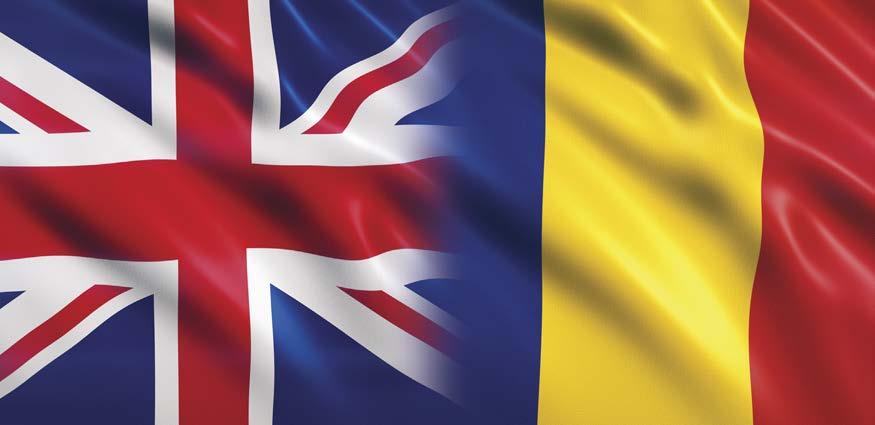

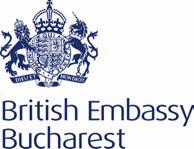




International








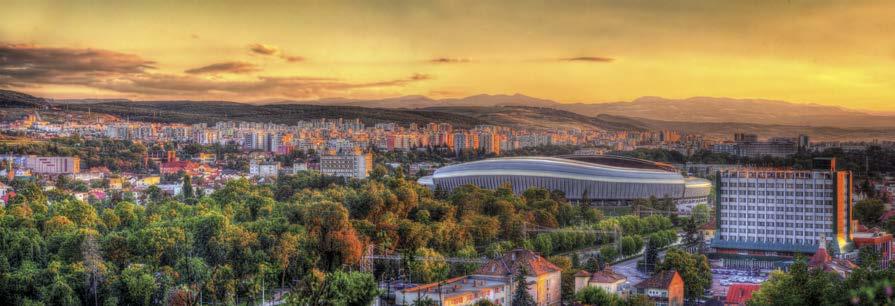

Never hunt for WiFi again. Imagine always being connected. Our app finds and connects you to reliable WiFi, everywhere you go.
Seamless. Simple. Secure. Download the app! www.purple.ai/connex





























International










Never hunt for WiFi again. Imagine always being connected. Our app finds and connects you to reliable WiFi, everywhere you go.
Seamless. Simple. Secure. Download the app! www.purple.ai/connex



















The main objective of this Bilateral Business Guide is to provide you with basic knowledge about Romania and the UK, including an overview of their economies, business cultures and potential opportunities; and to identify the main issues associated with initial research, market entry, risk management and cultural and language issues.
We do not pretend to provide all the answers in the guide, but novice exporters in particular will find it a useful starting point. Further assistance is available from the Department for Business & Trade (DBT) team in Romania and in the UK. Full contact details are available throughout this guide.
This guide is available in four formats:
• Our website: www.UK-Romania.com
• This full colour hard-copy brochure
• PDF download*
• E-flipbook*
*(Please see our website for more details)
UK-Romania Bilateral Business Guide Team
Project Director: Craig Smith
Managing Editor: Megan Collingwood
Sales Manager: Jason Taylor
Creative Manager: Paul King / Claire King
Creative Consultants: Twistedgifted www.twistedgifted.com
© 2025 Doing Business Group Ltd. All rights reserved. UK–Romania Bilateral Business Guide, published in the United Kingdom by Doing Business Group Ltd. Unless otherwise stated, all content is © 2025 Doing Business Group Ltd. All website links and QR codes were correct as of September 2025. This publication contains public sector information licensed under the Open Government Licence v3.0.


Lesley Batchelor CBE, International Trade Champion and Chair of the Paddy Ashdown Forum.
Trade between the United Kingdom and Romania has quietly emerged as one of Europe’s most dynamic and mutually beneficial partnerships. In the four quarters to the end of Q4 2024, total trade in goods and services between the two countries reached £10 billion, marking a 5.1% increase year-on-year. This robust and steadily growing relationship is not only a testament to the resilience of both economies but also a signal of the untapped potential that lies ahead. As both nations look to the future, there is a clear opportunity to deepen commercial ties, diversify trade portfolios, and unlock new possibilities in emerging sectors.
Romania currently stands as the UK’s 32nd largest trading partner, accounting for 0.6% of the UK’s total trade. Over the past year, UK exports to Romania have surged by 12.3% to £2.8 billion, while imports from Romania have also grown by 2.6% to £7.1 billion. Although the trade balance presently favours Romania, with the UK reporting a trade deficit of £4.3 billion, this gap is narrowing. The upward trajectory of UK exports is particularly encouraging, reflecting increasing demand for British goods and services in Romania and suggesting a more balanced partnership in the years to come.
The bilateral trade relationship is notable for its diversity. Goods and services are both significant components of the trade mix. In 2024, goods accounted for just over half of UK exports to Romania, while services made up nearly 48%—and the latter are growing even faster. This diversity is a strength, providing resilience against sector-specific shocks and allowing both economies to benefit from a wide range of commercial activities.
The composition of trade between the UK and Romania reveals the complementary strengths of both economies. British exports to Romania
are remarkably varied, encompassing both traditional goods and cutting-edge services. Machinery, nuclear reactors, and boilers are among the top exports, with British engineering and manufacturing expertise highly valued in Romania’s growing industrial sector. Vehicles and automotive components, electrical and electronic equipment, and beverages— particularly spirits—are also key export categories. The UK’s prowess in pharmaceuticals, plastics, and manmade filaments further underscores its role as a supplier of high-value, high-quality goods.
Equally important is the UK’s export of services to Romania. The UK is a global leader in finance, business consultancy, and technology, and these sectors are increasingly in demand as Romania modernises its economy. The rapid growth in UK service exports to Romania, up nearly 15% year-on-year, highlights the appetite for British expertise in areas such as fintech, digital transformation, and professional training.
On the other side of the ledger, Romania’s exports to the UK are impressive in their own right. Romania’s competitive manufacturing sector, skilled workforce, and integration into European supply chains have made it a vital supplier to UK industries. Machinery and
mechanical appliances, vehicles and automotive components, and electrical equipment are among the top Romanian exports to the UK. The furniture and prefabricated buildings sector is another area of strength, as is the export of textiles and apparel. Romania’s ability to deliver high-quality, competitively priced goods has made it an indispensable partner for UK businesses seeking reliable suppliers.
The strategic value of the UK–Romania trade corridor extends far beyond the numbers. For both countries, this relationship offers critical advantages. Diversification of trading partners reduces reliance on traditional markets and enhances economic resilience. For the UK, Romania provides a gateway to Southeast Europe and the broader EU single market. For Romania, the UK represents a sophisticated consumer and business market with a strong appetite for quality and innovation.
Investment flows further reinforce these ties. UK foreign direct investment in Romania stood at £989 million in 2023, supporting jobs, technology transfer, and the development of new industries. These investments are not just financial—they foster long-term partnerships, drive innovation, and create shared prosperity.
Looking ahead, there is significant potential for both countries to focus on sectors where their strengths and needs align most closely. For the UK, green technology and renewable energy present a compelling opportunity. Romania is investing heavily in its energy transition, and UK firms with expertise in wind, solar, and smart grid solutions can play a pivotal role in helping Romania achieve its sustainability goals. Digital services and fintech are another area ripe for expansion, given Romania’s rapidly growing IT sector and appetite for digital transformation.
Healthcare and pharmaceuticals also offer fertile ground for collaboration. The UK’s worldclass life sciences sector can support Romania’s ambitions to modernise healthcare, from pharmaceuticals to medical devices and digital health platforms. Education and professional training are similarly promising, as British universities and training providers can meet the growing demand for English-language
education, vocational training, and executive development in Romania.
For Romanian exporters, the UK market offers significant opportunities in automotive and components, IT outsourcing, and software development. Romania’s reputation as a tech hub is growing, and UK businesses stand to benefit from Romanian expertise in software development, IT support, and digital innovation. The UK is also a receptive market for high-quality, traceable food products, giving Romanian agri-food producers a chance to expand exports of organic, specialty, and processed foods. Furniture and design represent another area where Romanian manufacturers can capture a larger share of the UK’s home and office markets by focusing on sustainable materials and contemporary design.
To realise the full potential of bilateral trade, both governments and business communities should work together to streamline customs and regulatory processes, making it easier for small and medium-sized enterprises to participate in cross-border trade. Investment in joint research and development, particularly in green technology and digital industries, can drive high-value trade and foster innovation. Strengthening business networks through chambers of commerce and trade missions will help businesses find partners and share market intelligence. Finally, supporting skills transfer through partnerships in education, training, and apprenticeships will ensure that both workforces are equipped for the future.
The UK–Romania trade relationship stands as a model of modern European commerce: dynamic, diversified, and full of promise. By focusing on sectors of mutual strength and fostering a supportive business environment, both countries can transform today’s £10 billion trade corridor into an even more significant engine of growth, innovation, and shared prosperity. The time is ripe for businesses and policymakers on both sides to seize these opportunities and write the next chapter in this remarkable success story.
I hope you enjoy finding out more about bi-lateral trade with Romania.
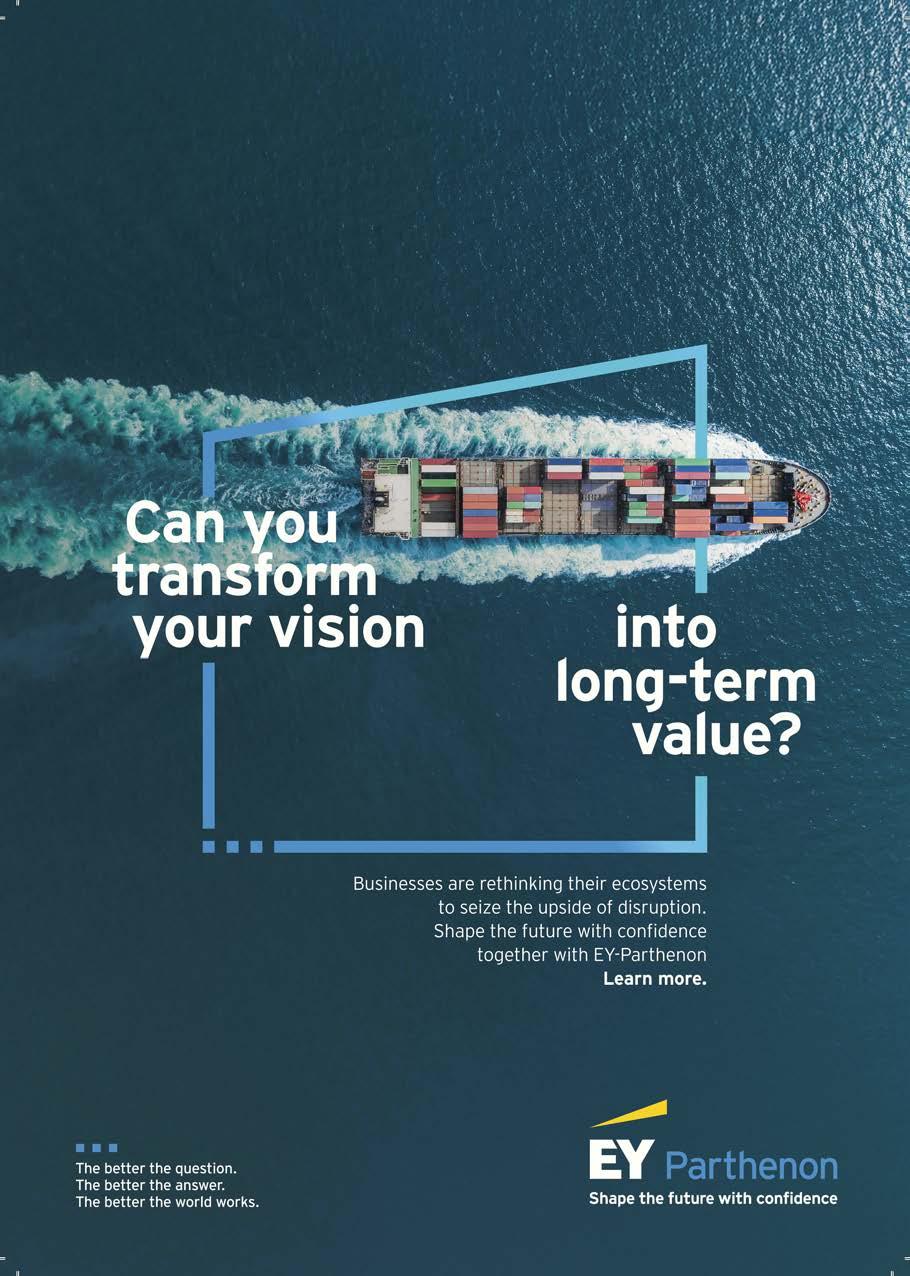
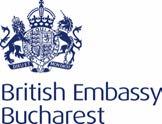


It’s a pleasure to introduce you to the wonderful country of Romania, and to set out some of the many reasons why we consider it such an important commercial partner, and why we see such potential in our future relations.
With a population of 19 million, Romania is an important, accessible and growing market in Central and Eastern Europe: relatively low-cost, and with a skilled and educated workforce, many of whom speak excellent English. It offers British businesses access to the EU market, and it became a full member of the Schengen Area at the start of 2025.
Romania’s location on the Black Sea and along the Danube River offers important trade links not just to the rest of Europe but also into Eurasia and the Middle East. Its major transport and logistics infrastructure, for example the expanding Black Sea Port of Constanta, is a key asset.
While the country’s capital city, Bucharest, is its main economic powerhouse, other cities like Iasi, Constanţa, Cluj-Napoca, Timișoara, and Oradea also stand out for their quality of life, thriving educational systems, highly skilled workforces – and excellent connectivity to the UK.
Developing our trade relations with Romania, in the context of the UK’s Growth Agenda, is one of our key goals. And we are doing just that: in 2024, the total value of trade in goods and services between our two countries reached £10 billion. Major British companies like Vodafone, the London Stock Exchange Group,
Unilever and Endava have all made significant and strategic investments here.
Romania is the largest producer of electronics in Central and Eastern Europe; its leadership in IT and motor vehicles is also well-established. Looking ahead, its growing digitalisation programme and access to significant EU funding offer great potential to modernise infrastructure, as well as major investment opportunities in areas like renewables, clean mobility, defence and security.
I’m convinced that British firms with expertise in these fields have much to offer and much to gain. Whether it’s through collaboration on high-tech innovation or sharing knowledge on best practices in cybersecurity, UK business expertise can play a vital role in supporting Romania’s ambitions for growth and development.
So now we want to go further: to work with the Romanian Government to foster the most business-friendly environment that we can. The strong partnership between the UK and Romania is something I am proud to support, and I look forward to continuing to strengthen the business connections that will develop our future prosperity together.


Bondoc și Asociații SCA stands as a leading Romanian law firm, distinguished by its profound understanding of the country's dynamic regulatory and economic landscape and its very extensive experience in assisting foreign investors and their local subsidiaries in Romania. We provide a comprehensive range of legal services, supported by a team of 41 highly skilled lawyers (one of the top 10 largest in Romania).
"Bondoc și Asociații stands out for the trustworthy and highlyqualified team, able to adapt and respond to the client's needs by thinking outside of the box."
(Chambers and Partners Europe, 2025)
”This team gathers lawyers with excellent legal knowledge and expertise and a high level of business understanding. Extremely diligent and detail oriented, but focused and dedicated to getting deals done in the best conditions for their clients. It is very well balanced in terms of the profile and professional experience of the team’s key members, with great professional and personal synergies that allow them to provide quick and spoton solutions.”
(Legal 500, 2024)
Bondoc și Asociații SCA
Fax: +40 31
office@bondocasociatii.ro www.bondocasociatii.ro
Follow us on


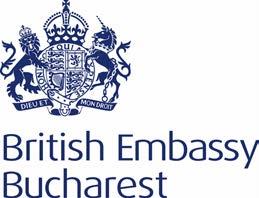
The UK Department for Business and Trade (DBT) plays a vital role in promoting British economic interests globally.
Through its extensive overseas network, DBT supports UK businesses in expanding internationally while also attracting foreign investment into the UK. In Romania, the DBT team operates from the British Embassy in Bucharest, acting as a bridge between the two countries’ business communities.
The DBT Romania team provides tailored support to UK companies seeking to export goods and services to Romania. This includes market intelligence, regulatory guidance, and introductions to local partners. They also assist Romanian firms interested in investing or expanding into the UK, offering insights into the UK’s business environment and sectorspecific opportunities.
Key trade sectors of collaboration include energy, including nuclear and renewables, defence and security, infrastructure, and clean mobility. The team organises trade missions, networking events, and promotional campaigns to foster bilateral trade.
Investment wise, the focus lies on the 8 growth driving sectors of the UK (advanced manufacturing, creative industries, clean energy infrastructure, defence, digital &technologies, financial services, life sciences, professional & business services), providing dedicated, professional assistance on all aspects of locating a new business in the UK or expanding existing facilities.
For any additional information about the Romanian market please contact the team at commercial.bucharest@fco.gov.uk


The Doing Business Group has proudly partnered with British and foreign government departments, embassies, high commissions, institutions, and international chambers of commerce worldwide. We specialise in helping UK-based companies succeed in overseas markets while promoting inward investment into the UK enterprise economy.

We provide tailored export promotion services designed to help UK companies expand their reach, trade successfully, and invest in lucrative overseas markets. Our extensive network of international trade and markets expert partners offer comprehensive support at every stage of the export journey. This includes in-depth market research to help businesses identify opportunities and understand the competitive landscape. We also provide dedicated business support, ensuring that companies receive guidance on navigating international trade complexities.
Additionally, our partner services cover financial and legal assistance, helping businesses manage regulatory compliance, financial planning, and risk mitigation when entering new markets. Our networks expertise extends to sales and marketing strategies, equipping companies with the tools to position their products or services effectively in foreign markets. We also offer crucial guidance on customs regulations, tax compliance, VAT procedures, and logistics, ensuring a smooth and efficient export process. By leveraging our support, UK companies can confidently expand their global presence and achieve sustainable growth in international markets.
The United Kingdom provides a dynamic and business-friendly environment, making it an ideal destination for companies looking to expand, trade, and invest. As one of the world’s leading financial and innovation hubs, the UK boasts a robust legal framework, investor-friendly policies, and minimal bureaucratic barriers, allowing businesses to establish, scale, and grow with ease. The country’s strong economy, skilled workforce, and access to global markets further enhance its appeal as a premier investment destination.
With a well-developed infrastructure, world-class research institutions, and a thriving ecosystem of start-ups, SMEs, and multinational corporations, the UK offers unparalleled opportunities across various industries, including technology, finance, life sciences, renewable energy, and manufacturing. Investors benefit from competitive tax policies, government incentives, and a highly adaptable regulatory environment that fosters growth and innovation.
Our extensive UK-wide network of inward investment agency partners is dedicated to helping overseas businesses navigate the process of setting up and expanding in the UK. From identifying the right location and securing funding to understanding market trends and forging valuable partnerships, our expert partners provide tailored support to ensure a smooth and successful transition.
Now is the time to take advantage of the UK’s thriving business landscape. Get started today— connect with us to explore new opportunities and unlock your company’s full potential in the UK market!
Get In Touch
Tel: (+44) 0113 521 7442
Email: info@doingbusiness.org.uk www.DoingBusiness.org.uk
Hours: Mon-Fri 9:00AM – 5:00PM
Doing Business Group International House Hogshaw Buxton SK17 7AX UNITED KINGDOM


Robert Uzuna, Chairman of the Board of Directors, Vice President for Corporate Affairs of Ursus Breweries


“I am deeply honoured for the mandate the BRCC Board of Directors and our members entrusted me with. It comes with a responsibility that both obliges and motivates. As we embark on rich transformative agenda during challenging times, I remain committed to my lifelong values – to serve and to relentlessly work for the greater good, this time at the helm of an institution that successfully combines tradition with stride for success. I am confident that the commitment and energy of my fellow Directors, together with the dedication of the BRCC team, will bring us even closer to our long-standing goals: realising the full potential of bilateral business ties between the United Kingdom and Romania, and contributing, alongside our institutional partners, to a dynamic and prosperous business environment for our members.”
Founded in 1998, the British-Romanian Chamber of Commerce (BRCC) is the principal business-led organisation championing trade and investment between the United Kingdom and Romania. With offices in London, Bucharest, Cluj and Sibiu, we provide a trusted platform for companies to connect, share expertise and build lasting commercial partnerships across both markets.
BRCC plays a pivotal role in fostering an open and reliable environment for trade and investment to flourish. By drawing on our strong network of corporate and individual members, we help UK businesses seize opportunities in Romania’s dynamic economy, while supporting Romanian companies to establish and grow in the mature and competitive UK market.

Part of the BRCC legacy are the 4 key events:
• BRCC Awards Gala – already achieved its 3rd edition this year, in which we celebrated excellence in business among the bilateral British-Romanian community.
• BRCC Garden Event – an evening of networking where we bring together our vibrant community of professionals and industry leaders in a pleasant summer atmosphere.
• The Investment Forum in UK – an excellent opportunity to explore investment opportunities in Romania, delve into the latest trends, and discover ways to enhance business and economic relations between the UK and Romania.
• Christmas Drinks Networking Event –where we celebrate the holiday season in a warm, festive atmosphere with our community.
The British Chambers of Commerce (BCC) is a dynamic and independent business network with Accredited Chambers in every nation and region of the UK, and in key markets around the world. Accredited Chambers sit at the heart of local business communities, helping thousands of companies – of every size and sector –to grow and thrive. Together with our fastgrowing global network, Chambers provide practical advice and support to British companies trading around the world.
The British-Romanian Chamber of Commerce was founded in 1998 by a group of forward-looking companies and individuals who recognised the need for a formal platform to strengthen bilateral trade between the United Kingdom and Romania. In its early years, the Chamber focused on guiding British businesses entering Romania’s emerging market, while also promoting Romania as a promising destination for investment. Over time, BRCC expanded its role, becoming a trusted source of market intelligence and advocacy, as well as a convenor of influential business forums and networking opportunities.
From its beginnings, BRCC has grown into one of the most respected bilateral chambers in the region, representing a wide range of industries and placing emphasis on sustainability, corporate responsibility, and innovation.
Key Membership Benefits
Access to an Extensive Business Network: Exclusive access to a highly diverse business community of over 240 members, including companies, organisations, and leaders from more than 30 sectors. This facilitates the establishment of valuable partnerships and the opening of new collaboration channels.
Networking Opportunities: Our networking events, including topic-focused conferences on Real Estate, ESG, Healthcare, and Tech, are key opportunities for business leaders to connect with experts across diverse industries, fostering meaningful interactions and collaborations.
Business Matchmaking: We facilitate strategic connections between members through business matchmaking.
Advocacy for Your Business: We are actively involved in dialogue with authorities and decision-makers, promoting the interests of our members.
Market Insights and Advisory: Our members benefit from access to essential resources, such as market analysis, case studies, and specialised consultancy, aimed at supporting strategic decisions and providing a deep understanding of the UK and Romanian markets.
Visibility & Marketing: As a member, you benefit from promotional opportunities through our communication channels, including the Chamber’s website, newsletters, and LinkedIn, enhancing your visibility and reputation within the business community.
Through internal working groups (Sustainability, Taxation, NGO, Education) and collaborations with influential organisations like the Coalition for Romania’s Development (CDR), we have a real impact on the business environment.
NGO
Objective: Connecting NGOs and businesses to create impactful collaborative projects.
Education
Objective: The WG serving as a dynamic platform that delivers timely updates on the education sector, drives the advancement of British education through collaboration, advocates for critical priorities.

Taxation Task Force
Objective: reunites experts in the fiscal domain, fostering in-depth discussions on the latest updates in the fiscal landscape, and addressing the challenges in taxation sector.
Key achievement 2024: the official signing of the double taxation treaty by Her Excellency Laura Popescu – Ambassador of Romania to the United Kingdom of Great Britain and Northern Ireland, and His Majesty’s Ambassador of Great Britain to Romania – Giles Portman —a landmark agreement that will support businesses and individuals by eliminating double taxation between our two countries.
BRCC fosters UK-Romania business ties through dynamic promotion strategies. Combining traditional media with digital tools, the BRCC ensures strong engagement and visibility. Targeted networking events and industry-specific workshops are key elements of their below-the-line initiatives.
Corporate Social Responsibility is integral to the BRCC’s mission, focusing on educational projects, sustainability, and promoting diversity. By blending innovative promotion with impactful CSR, the BRCC strengthens its role as a vital enabler of economic collaboration and ethical business practices between the two nations.

Brand values are the cornerstone of what a business represents, shaping its identity in the eyes of consumers. For our Chamber, these values reflect the hallmarks of British business culture: integrity, innovation, and a commitment to excellence. These principles, combined with a respect for tradition and a forward-looking mindset, create a trusted bridge between the UK and Romania, fostering collaboration and mutual growth. British business culture is deeply rooted in values that extend beyond the professional realm, emphasising social and ethical dimensions as well. Among these are inclusivity, which champions diversity and equal opportunities for all; sustainability, reflecting a commitment to environmental responsibility and longterm thinking; and fairness, ensuring transparency and equitable treatment in all dealings. Respect for individuality and fostering strong community connections are also hallmarks of British ethos, showcasing a culture that values both personal expression and collective well-being.
Together, these values create a framework that supports integrity, resilience, and global collaboration.
The BRCC Sustainability Survey 2024 highlighted the challenges our members face in advancing their sustainability goals. Respondents’ top priorities—training and workshops, opportunities to meet and connect at events, and better access to practical resources, reliable data, and tools—are shaping our programme for the year ahead. Guided by these insights,
we are focusing on tailored support to help every member move from intention to measurable impact.
In 2024, BRCC championed sustainability through key initiatives, including:
• Sustainability Conference “The Imperatives for the Next Decades” with 50+ participants and expert speakers on climate change, governance, and public–private collaboration.
• “Financing the Transition to a ClimateNeutral Economy” with Banca Transilvania, focusing on CSRD, net-zero strategies, and EU compliance (60+ participants).
• Contribution to the Smart Energy Expo in Constanţa, hosting a panel with government and industry leaders on sustainable energy solutions.
BRCC remains committed to advocating for responsible business practices and driving positive ESG outcomes through collaboration, advocacy, and knowledgesharing.
Did you know? Our Chamber isn’t just for Romanian and British companies— it welcomes businesses from all over the world seeking opportunities in both markets!
Did you know? We are under the umbrella of the British Chambers of Commerce, which unites 52 accredited UK Chambers and operates in over 75 international markets. This vast network opens up incredible opportunities for our members!

The BRCC team plays a central role in supporting members and advancing UK–Romania business ties. With a focus on membership services, events, advocacy, and market intelligence, the team works to create meaningful opportunities to connect, collaborate, and grow.




Iulia Serbanescu Events Manager




Beatrice Galaftionu Events & Marketing Assistant
Company name:
British Romanian Chamber of Commerce
Company location:
Bucharest: Miro Office-89 A Bucuresti-Ploiesti Road, Building C1, 2nd Floor, Sector 1, Bucharest
London: Global House, 303 Ballards Lane, London, N12 8NP
Telephone : +40749294170
Email address: info@brcconline.eu
Website address: https://brcconline.eu
A contact name for a personal touch: madalina.ciinaru@brcconline.eu
BRCC Membership Packages: https://brcconline.eu/wp-content/uploads/2024/05/Membership-Package-RO-eng.pdf








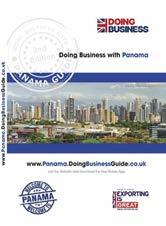




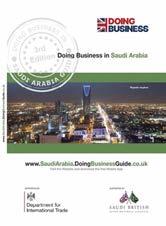



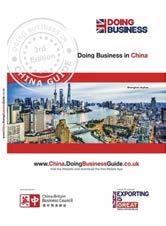





UK Export Finance (UKEF) is a UK government ministerial department and the nation’s export credit agency (ECA).
UKEF helps exporters access working capital and manage the risk of not getting paid by offering a government guarantee. It partners with private sector finance providers to grow UK exports and international trade. UKEF supports companies of all sizes and multiple sectors across the UK.
It helps UK companies:
win export contracts by guaranteeing finance to buyers so they can source from the UK
fulfil more orders by unlocking working capital to take on new or higher value contracts
get paid for their products and services with insurance against buyer default
UKEF has regional Export Finance Managers on hand to provide free and impartial consultations to local businesses on their export finance needs. UKEF’s global network is also on hand to discuss financing options available to international buyers so that they can source goods and services from the UK.
For up to date country specific information on the support available, see UK Export Finance’s country cover policy and indicators at:
www.gov.uk/guidance/country-coverpolicy-and-indicators
Details for Romania are available at:
www.gov.uk/guidance/country-coverpolicy-and-indicators#romania
Find out more about UKEF’s products and read success stories, describing real-life examples of UKEF support.
Get in touch to see if UKEF can help your business.




Andreea Stanescu
Andreea Stanescu has led LSEG’s Engineering and Operations Hub in Romania since its launch in 2018.
With over 25 years of executive experience in IT and business services, she has played a key role in growing the local team to over 1300 professionals, positioning Romania as a strategic centre within LSEG’s global network.
In this short interview, she shares insights into how the team in Romania contributes to the Group’s global operations and plays a growing role in strengthening the financial relationship between the UK and Romania.
“How do you define LSEG's global mission today, and how does the London Stock Exchange fit into it?
LSEG today is a world-leading provider of financial markets infrastructure, data, and analytics, working at the crossroads of finance and engineering. Together, our five business divisions – Data and Analytics, FTSE Russell, Risk Intelligence, Capital Markets and Post Trade – offer customers seamless access to global financial markets, across the trading lifecycle with significant operations in 65 countries.
London Stock Exchange is an important and strategic asset within our Group, but it represents just one component of a much broader global business.
Our core mission is to enable sustainable economic growth by providing trusted, transparent, and efficient infrastructure to global financial markets.
What role does the team in Romania play within the Group’s global operations?
The team is a very important pillar of our global engineering and operations footprint.
Since opening our first office in 2018, our teams have grown to more than 1300 employees across Romania’s two largest cities, Bucharest and Cluj-Napoca. These locations are not just operational hubs— they are core to how we design, build, and maintain global solutions. Our Romanian talent supports the full product lifecycle, from architecture and development to infrastructure and analytics, spanning multiple business lines and services.
Additionally, the region benefits from excellent internet connectivity—with some of the fastest speeds worldwide—alongside reliable telecommunications and transport infrastructure, making it an ideal location for complex, technology-driven operations. This isn’t a satellite office. It’s a core part of how we build and operate global solutions.
What kind of engineering and innovation happens in Romania?
The range of work carried out by our Romanian teams is broad and fully integrated within LSEG’s ongoing engineering evolution. These teams play a key role in driving innovation and efficiency across the Group’s engineering landscape.
Our Romanian engineers and specialists focus on several key areas:
• Advanced cloud architecture and platform resilience: Designing and implementing scalable, secure, and highly available cloud infrastructure to support LSEG’s diverse portfolio of services. This includes leveraging cloud technologies and microservices architectures to ensure platform performance and rapid scalability.
• AI-driven data processing and ESG analytics: Developing advanced artificial intelligence and machine learning models that enable real-time data processing, predictive analytics, and enhanced insights—particularly in environmental, social, and governance (ESG) reporting. This helps LSEG provide transparent, actionable data to investors and clients focused on sustainable finance.
• Trading and clearing system modernisation: Modernising core trading platforms and clearing systems to enhance speed, reliability, and compliance with evolving regulatory standards. This includes upgrading legacy systems and integrating next-generation technologies that improve market efficiency and risk management.
• Cybersecurity and regulatory compliance platforms: Building and maintaining resilient cybersecurity frameworks to protect sensitive market data and infrastructure from cyber threats. The teams also develop advanced compliance tools that help LSEG meet the complex requirements of global financial regulations, ensuring trust and transparency in all operations.
They deliver large-scale, essential infrastructure that powers many of the Group’s services, from post-trade services to capital markets to sustainable finance.
What about the cultural and social values within LSEG?
As Romania’s site leader, I’m proud of the strong social and cultural values LSEG promotes—not only within our teams, but also in the broader communities we serve. One of our core commitments is to make an impact in the lives of children from disadvantaged backgrounds, including those living in rural areas and children with disabilities.
We actively collaborate across both of our locations, working hand-in-hand with over 15 NGOs on a variety of projects. These initiatives currently reach hundreds of children, focusing on improving access to education and supporting financial independence. What makes these projects truly special is the direct involvement of our colleagues, many of whom volunteer as mentors, providing guidance, support, and encouragement to the children we help.
Moreover, when it comes to our employees, we’ve established a local structure that encourages open communication and a strong sense of belonging. We make it a priority that every team member—whether they’re part of a global function or a local one—feels heard, respected, and valued.
From a leadership standpoint, I also prioritise employee wellbeing. We’ve cultivated a supportive environment where individuals are encouraged to take care of their mental and physical health. This approach has a direct impact on our performance and team engagement. In fact, our employee engagement score currently stands at 80 out of 100, reflecting the strength of our culture and the wellbeing of our team.
Through our social initiatives, internal culture, and everyday actions, we aim to be a company that makes a difference— inclusive, purpose-driven, and committed to creating positive change both within and beyond our organisation.
What’s next for LSEG’s presence in Romania?
Romania is playing a bigger and more important role in driving our priorities forward. Our teams here are closely involved in some of the Group’s most meaningful transformation efforts, and their impact will keep growing as we build up our data capabilities, improve our cloud platforms, and keep pushing our innovation agenda.
Our technical talent is driving engineeringled transformation, helping us rethink how we build, deliver, and scale our products and services. At the same time, we’re advancing our ESG and AI capabilities—two areas that are becoming central to how we futureproof our business and add value to our customers. Equally important is our focus on building inclusive, high-performance cultures. At LSEG, we champion a work environment where diverse perspectives are welcomed, collaboration is embedded in the way we operate, and everyone is empowered to contribute to the Group’s success.
What role has LSEG played in supporting Romania’s capital market development?
LSEG has served as a key partner in Romania’s capital market development by providing companies with access to deep pools of global capital and enhanced international visibility for domestic issuers.
To date, 33 equity deals by Romanian companies have been executed on LSEG’s markets — comprising 10 IPOs and 23 follow-on offerings, raising USD 4.5 billion.
In addition, Romania has raised with significant operations in 65 countries USD 591.6 million through Eurobond issuances via the London Stock Exchange.
This sustained activity reflects both Romania’s growing corporate maturity and LSEG’s strategic role in providing the infrastructure, investor reach, and regulatory clarity required for capital raising at scale.
Have Romanian companies listed or collaborated with the London Stock Exchange? Could you share some notable examples?
Yes, Romanian companies have an active and growing presence on the LSE (which is part of LSEG). Currently, two Romanian companies are listed on the Main Market:
• Globalworth Real Estate Investments Ltd. – market capitalisation approx. USD 812.8 million (ICB: Real Estate Investment and Services)
• Societatea Energetică Electrica SA –market capitalisation approx. USD 1,173.3 million (ICB: Electricity)
In addition, a recent and notable initiative is MoonShotX — a capital markets acceleration programme spearheaded by InnovX and Raiffeisen Bank Romania, which was formally welcomed at the London Stock Exchange in June 2025. The programme is designed to prepare Romanian SMEs and mid-sized companies for global growth through private equity, institutional investment, and potential listings.
In your view, what makes Romania an attractive destination for UK companies?
The country has established itself as a regional centre of excellence in technology and innovation, becoming a key hub for IT services, fintech, and digital infrastructure. This dynamic environment is driven by strong private sector engagement and a culture that embraces forward-thinking solutions.
One of Romania’s greatest strengths lies in its highly skilled and technically proficient workforce. The talent pool here is not only one of the most capable in Central and Eastern Europe but also cost-efficient, making it an attractive location for both startups and large multinational companies aiming to scale efficiently without compromising on quality.
Moreover, Romania’s alignment with European Union standards ensures a stable and transparent regulatory environment.
For example, at LSEG, we leverage diverse talent and capabilities across a wide range of projects—from developing advanced data analytics platforms and cloud-native solutions to driving innovation in AI and ESG products. Our teams play a key role in modernising global market data infrastructure and creating tools that support sustainable investing, directly contributing to the Group’s overall growth and innovation agenda.
How has collaboration evolved in areas like fintech, ESG, or digital transformation?
I can tell you about three areas:
• Fintech: Romania has a growing number of fintech disruptors, and LSEG is actively engaged through both its own presence in Bucharest (tech development hub) and through support of regional accelerators.
• ESG: Many Romanian corporates are beginning to align with IFRS Sustainability Disclosure Standards and EU Taxonomy requirements — areas where LSEG, through its data and analytics arm, is a recognised global leader.
• Digital Transformation: LSEG Romania (Bucharest and Cluj) is itself a case study — with over 1,300 local engineers contributing to the global development of LSEG's trading, data, and post-trade platforms. This represents one of LSEG’s largest technology delivery centers worldwide.
What are the next steps or future goals in strengthening the UK–Romania relationship?
I can share some details regarding LSEG’s perspective on future goals for strengthening the UK–Romania relationship. Looking ahead, our strategic priorities focus on deepening this partnership in different ways.
We aim to broaden the pipeline of Romanian corporates seeking to list on both the Main Market and AIM, with particular emphasis on the mid-cap and technology sectors— areas where we see significant growth potential.
Additionally, we are committed to expanding programmes like MoonShotX to include cross-border investor events, London-based capital markets education, and IPO simulation labs. These initiatives are designed to equip Romanian companies with the knowledge and exposure needed to successfully access UK capital markets.
Do you see opportunities for Romanian startups or SMEs to expand in the UK capital markets?
Yes, there is significant potential. The UK capital markets — especially via AIM and private placement platforms — offer Romanian SMEs a unique opportunity to access scale-up capital, gain international investor credibility, and diversify funding sources beyond local or EU grants.
With investor appetite for innovation-led growth stories, and LSE's established ecosystem for early-stage public listings, Romania’s startups — particularly in software, green energy, medtech, and cybersecurity — are well-positioned to capitalise on this momentum.






Geography & Population
238,391 km2
POPULATION
19,000,000 (2024)
URBAN POPULATION 54.7% (2023)
POPULATION GROWTH RATE -0.94% annually (2024)
URBAN GROWTH RATE +0.15% annually
IMPORTS
$136.5 billion (2024) TRADE (Only Goods)
Economic Indicators
$100 billion (2024)
EXPORTS
GDP (2025)
$403.4 million
GDP Growth: 1.6% (2025) / GDP per Capita: $21,420 (2025)
Inflation & Employment (2024)
5 .7 % INFLATION
5.4 % UNEMPLOYMENT
Current Account Balance: $30,52 billion (2025) Public Finances
Public Debt: 61.6% (2025)
(Source – CIA World Factbook)

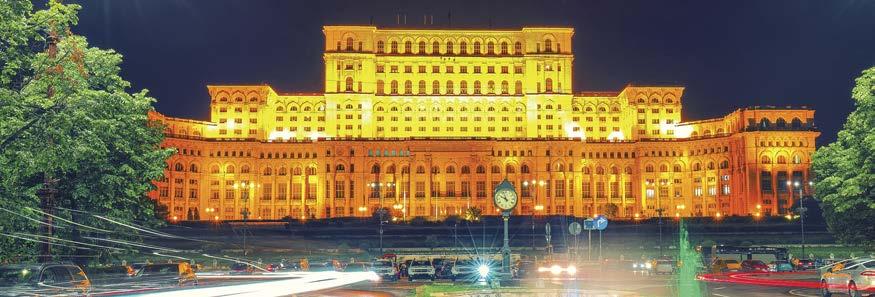
Romania is an emerging market that has been a part of the European Union (EU) since 2007. The country’s economy is diverse and is driven by many of its sectors including the automotive, information technology, agriculture, and energy sectors. The country is currently working towards becoming a tech hub due to its increasing technology sector. The country’s agriculture is also a significant sector, due to its exporting.
In regard to exporting, Romania’s main exports include machinery, vehicles, electrical equipment, and agricultural equipment.
The country also has many economic benefits such as its strategic location, skilled work force, and its access to EU markets.
Romania is located in Southeast Europe and is bordered by Ukraine to the North and East, Moldova to the East, Bulgaria to the South, and Serbia and Hungary to the West. Romania also has access to the sea, due to the Black Sea being located in the Southeast of the country.
Romania is the 8th largest country in Europe.
Romania has diverse terrain and landscapes including mountainous areas (e.g. Carpathian Mountains), fertile plains (e.g. Wallachia), the Transylvanian Plateau, and the Danube River. The country also contains a UNESCO World Heritage Site, the biodiverse Danube Delta.
Due to the varied landscape, Romania has many natural resources including oil, gas and minerals.
Romania is a semi-presidential republic, with a multi-party system. Power is separated between the legislative (Senate and Chamber of Deputies), executive (president and prime minister), and judicial (law) branches.
Romania’s president is elected every five years and is the Head of State. Presidential elections took place in May 2025 following the annulment of the 2024 Presidential elections due to allegations of Russian interference. Nicușor Dan, an independent candidate, was elected as President in May 2025, receiving 53.6% of the overall vote.
The prime minister is appointed by the president and is responsible for domestic policies. Ilie Bolojan became PM in June 2025 as the head of a coalition representing a 'pro-European' coalition of centre-right, left and minority parties- including the Hungarian minority.
Romania is currently facing significant fiscal challenges, with the widest budget deficit in the EU at 9.3% of GDP in 2024. Despite this, the economic outlook remains cautiously optimistic. Real GDP growth is projected at 1.4% in 2025, supported by continued investment through EU funds, including €28.5 billion allocated under the Recovery and Resilience Plan (RRP).
In response to the deficit, the government has launched a sweeping fiscal consolidation programme, including tax increases and spending controls. These measures aim to restore fiscal discipline and bring the budget deficit below 3% by 2030.
Romania’s growth potential lies within several sectors. The country is a tech hub within Europe, allowing growth to occur in the information technology (IT) sector.
The country boasts a multilingual and high-quality IT workforce, as well as having fast broadband speeds.
The country is also growing in the renewable energy sector, as the government is investing in green energy projects.
With the support of the EU, Romania has funded infrastructure improvements, allowing growth to occur through sustainable projects, transportation projects, and connectivity projects.
Romania has been a member of the EU since 2007, and therefore benefits from the EU’s single market, which allows goods and services to move freely. The country has aligned its trade policies with the EU’s policies, including the EU Common Trade Policy, allowing them to benefit fully of all the free trade agreements signed by the EU. They are also involved in the trade negotiations the EU takes part in.
(Source – Gov.uk)
As a member of the EU, Romania is making sure its business practices align with human rights standards. Romania’s polices include businesses taking responsibility for their workers, promoting labour rights, and making sure businesses are not discriminating against their workers.

Romania outlines these policies in its National Action Plan on Business and Human Rights. There have been challenges regarding wage gaps, workplace safety and discrimination against certain minority groups, especially towards Roma communities. Human rights policies are also not always fully enforced in rural areas.
UK businesses wanting to set up in Romania, must make sure that they are aligning their business practices with the country’s human rights policies. You must also make sure to do due diligence on your business’ impacts on human rights, especially if your business is in the construction, manufacturing and agricultural sectors. You must monitor your business’ behaviour and take accountability.
(Source – Gov.uk)
The UK and Romania have a positive trade relationship, which has seen an increase in bilateral trade and agreements that have been beneficial for both countries, including a double taxation agreement and a defence treaty. By the end of 2024, the UK had exported over £2.7 billion worth of goods to Romania, making Romania the UK’s 46th largest export market.
The main goods exported to Romania are:
l Engine parts
l Liquor
l Vehicles
Romania offers a range of opportunities for UK businesses, especially in the IT, energy (including clean energy) and infrastructure sectors. Whilst the country also provides incentives through a skilled workforce, its strategic location and tax benefits.
As the UK looks to reduce the trade restrictions with the EU, trading with Romania is likely to become easier, whilst making a platform for economic partnerships and co-operation.
(Source – Gov.uk)
l Competitive tax regimes
l Skilled workforce
l Lower labour costs
l Competitive rates
l Strategic location
l Efficient transportation infrastructure
l EU funding and incentives
l Supported business environment
Key Strengths of the Romanian business and trade market are:
l Strategic Location: In central and Southeast Europe, it allows access to EU markets and contains the Black Sea Port of Constanţa.
l EU Membership: It has full access to the EU’s single market, participates in all of the EU’s trade agreements, and has access to the EU’s funds.
l Skilled Workforce: It has a large talent pool across many sectors, that are highly proficient in languages linked to business, and the country has competitive labour costs.
l Growing Tech Sector: Especially in software development, cybersecurity, and IT services.
l Robust Industrial Base: In the automotive, machinery, electronics, textiles and food processing sectors.
l Improving Infrastructure: Expansion of highways, railway links and energy grids.
l Government Incentives: Including a competitive corporate tax rate (16%), sector-specific tax breaks, state aid programs and grants.
l In Transparency International’s latest Corruption Perception Index for 2024, Romania ranked 65th out of 180:
https://www.transparency.org/ en/cpi/2024/index/rou
l The Heritage Foundation’s 2025 Index of Economic Freedom ranked Romania 51st out of 184 countries:
https://www.heritage.org/ index/pages/countrypages/romania
The British Embassy in Bucharest plays a key role in maintaining and strengthening the relationship between the UK and Romania. It offers essential services to British nationals living in or visiting Romania, ensuring support, guidance and advice for various needs.
The British Ambassador to Romania is Giles Matthew Portman.
For any inquiries, you can contact the embassy directly through their website:
https://www.gov.uk/world /organisations/britishembassy-bucharest
(Source – British Embassy Bucharest)
The British Romanian Chamber of Commerce (BRCC) is the leading businessled organisation in the UK dedicated to promoting trade and investment between the UK and Romania. Its core mission is to enhance and expand bilateral trade by facilitating business-to-business dialogue, whilst connecting companies from both countries to foster mutual growth.
As a key player in creating a thriving environment for free trade and investment, the BRCC supports UK companies looking to capitalise on emerging opportunities in Romania, as well as Romanian businesses seeking to expand into established UK markets. With a vast network of influential corporate and individual members, the Chamber provides essential resources, knowledge, and infrastructure support to help companies succeed in both markets.
To learn more about their work and services, visit the British Romanian Chamber of Commerce website:
https://brcconline.eu
(Source – British Romanian Chamber of Commerce)

The Romanian Business Club UK is a dynamic and supportive community that brings together Romanian entrepreneurs, business owners, and professionals living and working in the United Kingdom. Its primary goal is to foster growth and innovation within the Romanian business diaspora by providing a platform for networking, idea exchange, and collaboration.
The Club offers a variety of events, including networking opportunities, online meetups, and business workshops, all designed to help members connect, share insights, and promote collective success. By uniting Romanian business owners and professionals in the UK, the Romanian Business Club creates an environment where members can collaborate, inspire one another, and navigate the complexities of the UK business landscape.
To learn more about their initiatives, visit the Romanian Business Club UK website:
https://romaniabusinessclub. co.uk/
(Source – Romanian Business Club UK)
The UK’s Department for Business and Trade (DBT) is a government department that is dedicated to increasing economic growth throughout the UK. Their mission is to support businesses, in all areas including setting up, investing, expanding and exporting. The aim of this mission is to create jobs and opportunities around the UK.
The Department of Business and Trade was previously the Department for International Trade and the Department for Business, Energy and Industrial Strategy. The merging of the two departments on the 7th February 2023, has allowed the new department to focus on businesses and international trade.
The Department has a set of priorities, which are as follows:
l To increase economic growth in all sectors
l To support businesses by improving their access to finance, and by creating an environment that has regulations that are pro-enterprise
l To increase the promotion of UK businesses around the world, in order to attract key investments that are high value
l To help businesses through free trade agreements and partnerships
l To protect consumers
l To remove barriers that affect fair competition
l To champion free trade
l To enhance supply chain resilience
l To strengthen economic security
l To increase innovation and growth through benefitting from the opportunities of Brexit
l To remove unnecessary regulatory barriers
l To advance legislation to establish minimum service levels for essential public services
www.UK-Romania.com
l To review, reform, or repeal retained EU law
For more information visit the Department for Business and Trade’s website at:
https://www.gov.uk/governmen t/organisations/departmentfor-business-and-trade
(Source – Department for Business and Trade)
Events and Trade Shows are important ways of researching whether your goods or services will be successful within Romania. At these events you will be able to network with others in your sector/ industry to gain important advice and guidance. You will also be able to test the market, attract customers, make sales, and liaise and appoint agents and distributors.
To find out if there are any events or trade shows in the UK and Romania that will benefit your business, visit the following websites:
10 Times:
https://10times.com/unitedki ngdom/tradeshows
British Expertise:
https://www.britishexpertise.or g/events
Events Eye:
https://www.eventseye.com/fair s/c1_trade-shows_uk-unitedkingdom.html
Events Eye (Romania Trade Shows):
https://www.eventseye.com/fair s/c1_trade-shows_romania.html
Great.gov.uk:
https://www.events.great.gov.u k/ehome/trade-eventscalendar/all-events
Make sure if you are travelling to Romania from the UK, you have a full British passport. When entering Romania, it is important to understand that the Romanian Authorities will enforce their own rules for entering the country.
For more information contact the Romanian Embassy at:
https://londra.mae.ro/en/node/ 397
When entering Romania make sure your passport meets the following requirements:
l The date of issue must be less than 10 years before your trip
l It has an expiry date that is at least 3 months after the date you plan to leave Romania
If you need to renew your passport, visit the UK Government’s website:
https://www.gov.uk/renewadult-passport/renew
If your passport does not meet these requirements, you will be denied entry into Romania.

Be aware that border checks may be carried out if you enter other countries in the Schengen Area, including Bulgaria and Hungary, so make sure you have your passport with you.
Schengen Area: A group of 29 European countries that have removed internal border checks, enabling the free movement of people and goods across their borders.
In October 2025, the EU plans to establish their Entry/Exit System (EES)*, for more information visit the EU’s website:
https://www.gov.uk/guidance/ eu-entryexit-system
Make sure your passport is stamped when you arrive in Romania and when you leave.
If travelling in the Schengen Area, you can travel without a visa for up to 90 days, but it has to be within a period of 180 days. If you overstay, you can be banned from entering the Schengen Area for up to three years. This applies to you if you are:
l A tourist
l Visiting a relative or friend
l Attending business meetings
l Attending an event (cultural, sports, festival)
l For studying or training (short-term)
If you are travelling to Romania to work, check with the UK Government’s website to find out whether you will need a visa:
https://www.gov.uk/guidance/tr avel-to-romania-for-work
Your entry and exit stamps on your passport will prove the length of time you have stayed in the Schengen Area and will alert the authorities if you have overstayed. As well as these stamps you may also have to show your return ticket or onward travel ticket, as well as proving you have enough money to support you during your stay. If you are planning to stay longer than 90 days, you may need a work permit or a different type of visa. You may also be able to apply for a long-stay visa or residence permit. To check which documentation youwill need, see the Romanian Embassy’s website:
https://londra.mae.ro/en/node/ 397
There are certain goods you cannot take into Romania, for more information see:
https://www.customs.ro/en
Make sure you declare any items that could be prohibited, have tax on them or a duty.
If the value of cash or traveller’s cheques are over 10,000 Euros you must declare it. If you don’t, it could be seized when you exit the country.
*On the 12th of October, the European Union’s new Entry/Exit System (EES) will begin. When travelling in and out of the Schengen area for short stays you may need to have your fingerprints and photo taken, as well as answer Schengen Border Code questions.
If you are a resident in Romania, you are exempt from having to register in the Entry/Exit System (EES) if you have documentation to prove your exemption (e.g. permis de ședere).
EES may take each passenger a few extra minutes to complete so be prepared to wait longer than usual at the border once the system starts.
If you plan to leave Romania with a child under the age of 17, and they hold citizenship in Romania, you must show parental consent. If you are not the parent, or you are travelling without the other parent you will need notarised parental consent.
(Source – Gov.uk)
When travelling to Romania make sure you have travel insurance, this will be for medical treatment and emergency appointments.
If you are pregnant or you have a certain medical condition, it is advised that you check whether the hospitals in the area of Romania you will be visiting have the correct healthcare you may need if required.
If you have a medical emergency in Romania the emergency contact number is 112, you will then be able to ask for an ambulance. If you need treatment call your insurance company as soon as possible.
You may need certain vaccines or you may need to meet medical requirements in order to enter Romania. For further guidance see TravelHealthPro’s website:
https://travelhealthpro.org.uk/ country/185/romania#Vaccine_ Recommendations
If you do require vaccines, you must get these at least 8 weeks before you travel.
To check whether you need to pay for your vaccinations, see the NHS’s website:
https://www.nhs.uk/vaccination s/travel-vaccinations/travelvaccination-advice
Health Risks
In certain parts of Romania there is a risk of altitude sickness.
Medication
Be aware that not all medicines that can be bought or that are prescribed in the UK can be taken into or accessed in Romania, due to different legal statuses, availability or the country’s rules and laws.
There are several Romanian hospitals that hire English speaking staff, for a list of medical providers in Romania see:
https://www.gov.uk/governmen t/publications/medical-facilitieslist-romania
A Global Health Insurance Card (GHIC) or a European Health Insurance Card (EHIC) may be needed to gain access to Romania’s healthcare services.
For information on how to apply for these see:
https://www.nhs.uk/using-thenhs/healthcare-abroad/apply-f or-a-free-uk-global-healthinsurance-card-ghic/
Be aware that they do not cover:
l Additional treatment costs
l Any changes you need to make to bookings (e.g. travel and accommodation)

l Medical repatriation
l Non-urgent medical treatment
l Private healthcare and clinics
Travel and Mental Health
The Foreign, Commonwealth and Development Office has guidance on if you are travelling with a mental health condition, see their website at:
https://www.gov.uk/guidance/m ental-health-and-wellbeingabroad
(Source – Gov.uk)
Terrorism
Be aware that there is a high threat of terrorism around the world, and there are groups and individuals that will target those from the UK. There have been no recent terrorist events in Romania, however, make sure you remain vigilant.
For information on how to stay safe during a terrorist attack, see the UK Counter Terrorism Policing website:
https://www.counterterrorism. police.uk/safetyadvice/
and the UK Government’s guidance:
https://www.gov.uk/guidance/r educe-your-risk-fromterrorism-while-abroad
Political Situation
Due to the conflict between Russia and Ukraine, you need to be aware that there is currently military activity in Ukraine. The country lies on the North and East borders of Romania.
In Romania it is common for public demonstrations to take place. These are mostly peaceful, however there has been instances of violence. Be careful when in crowded areas and make sure you follow the instructions of the local authorities.
Make sure you keep your personal belongings safe as theft can occur. Remain vigilant as distraction techniques may be used, especially in organised attacks. Keep important documents (e.g. passport), money and valuables safe, especially in public or crowded areas. If possible, keep these items in your hotel room’s safe.
There have been cases where credit cards and debit cards have been copied for fraudulent activities.
Spiking of Drinks
If visiting a bar or a club, make sure to keep your drink with you, as there is a risk of someone spiking your drink.
Penalties for Illegal Drugs
Romania has a zero-tolerance for drugs. If you are caught with drugs, you could receive a large fine or a lengthy prison sentence.
Photography
Photography is banned at military bases and many airports in Romania, if you are unsure ask permission.
LGBT+ Travellers
In Romania, same sex relationships are legal. For information and advice for LGBT+ travellers travelling to Romania see:
https://www.gov.uk/guidance/le sbian-gay-bisexual-andtransgender-foreign-travel-advi ce
The rules, legislations and legal requirements for driving on the road in Romania are different from those in the UK, if you are planning on driving in Romania see the RAC’s guidance:
https://www.rac.co.uk/drive/tra vel/country/romania
To drive in Romania, you will need to have your valid UK photocard Driving Licence or International Driving Permit (IDP) with you.
You may need a UK sticker to drive your car in Romania, to check if this is applicable to you see:
https://www.gov.uk/displayingnumber-plates/flags-identifiersand-stickers
If you plan to hire a car, be aware that they have stricter rules, these include your age, how long you have been driving for and if you have an international driving permit (IDP).
If you are caught drink driving, you may receive a fine or a prison sentence.
Be aware that the road conditions can vary, depending on where you are in the country. There may be better road conditions in urban areas.
If you are in a road accident, make sure you get a report at the scene of the accident.
You need to pay a road toll if you plan to drive on the national roads in Romania. You can buy a sticker (vignette) at border check points or in many of the country’s petrol stations. If you do not have this sticker, you could face a fine.
Make sure you use a reputable taxi service or taxi app, including Uber or Bolt. Many taxi companies in Romania will have their price list displayed on their vehicle.
If you are in Romania during an extreme weather event or natural disaster you may receive an alert on your mobile phone from the Romanian Government. Make sure you follow the advice from the authorities.
Romania is on an active earthquake site; however, the last major earthquake was in 1977.
For guidance on what to do if an earthquake occurs see the US Federal Emergency Management Agency website:
https://www.ready.gov/earthqu akes
l Advice for women:
https://www.gov.uk/guidance/a dvice-for-women-travellingabroad
l Advice if you are travelling with a disability:
https://www.gov.uk/governmen t/publications/disabledtravellers
l Advice for if you are travelling alone:
https://www.gov.uk/guidance/s olo-and-independent-travel
(Source – Gov.uk)

Make sure you obtain the appropriate travel insurance to cover any medical treatment you may need, any activities you plan to do, and if you have an emergency.
For guidance on which travel insurance you should choose, see:
https://www.gov.uk/guidance/f oreign-travel-insurance
(Source – Gov.uk)
Romania plans to build a new terminal at Bucharest Airport, expand Iasi Airport and upgrade its Cluj Napoca Airport. Therefore, there are opportunities for UK businesses that work in luggage handling technology, platform logistics, air traffic systems, airport design and planning, and digital systems for passengers.
The Romanian Government has put plans in place to invest around £1.1 billion in port development. This development includes new container handling facilities, more storage spaces, deeper berths, multimodal platforms and new terminals in several of its major ports. Opportunities for UK businesses can be found in engineering, terminal design and building, dredging and smart logistics.
Romania has one of the largest railway systems within the EU. The country is
currently planning to make upgrades that will improve the systems speed, energy efficiency, and its connections throughout the country. Romania offers opportunities to UK businesses that work in rail design, project management, digital signalling and electrification.
(Source – Business.gov.uk)
Vehicle production increased by 9.17% at the end of 2024, making Romania the fifth largest car manufacturer in Europe. There are opportunities for UK businesses that can supply electronic systems, plastic components, automotive equipment, steering wheels, car parts and car accessories.
The EU and Romanian Government have plans to fund the development of electric transportation. They also plan to put subsidies on the purchasing of electric cars. Regarding public transport, the country plans to move towards electric buses. Therefore, there are opportunities for UK businesses that work within the green sector that have knowledge regarding sustainable transport, energy efficiency, and clean energy.
€15 billion has been set aside by the Romanian Government to fund projects for smart cities. This is to upgrade the country’s urban areas through increased export opportunities. Opportunities for UK businesses are in areas including traffic management, digitalisation, lighting, and transportation.
(Source – Business.gov.uk)
www.UK-Romania.com
Romania has plans to improve its infrastructure regarding health, including updating and improving hospitals. With up to £1.5 billion in funding the country hopes to prioritise three construction projects in Cluj, Iasi and Craiova. Opportunities for UK businesses are in areas such as design, construction, clinical consultancy, medical equipment and technology, and digital health systems.
EHealth is a priority in Romania, including data protection, electronic health records, and online health services. The Ministry of Health in Romania has put plans in place to set up a National Health Digital Agency, therefore there are many opportunities for UK businesses that have knowledge of setting up and maintaining digital services.
(Source – Business.gov.uk)
Romania is funding two nuclear power projects including upgrading the nuclear reactors in Cernavoda and establishing the first Small Modular Reactor in Europe. Therefore, there are opportunities for UK businesses that work in the nuclear industry.
By 2030, Romania plans to put £4.3 billion into installing new wind and solar projects that will generate up to 10GW. There are also plans to build offshore wind projects within the Black Sea. Therefore, there are opportunities for UK businesses in clean energy industries (e.g. wind and solar), as well as businesses that can supply energy storage, hybrid projects, smart grid software, digitalisation and grid integration.
(Source – Business.gov.uk)
The security industry in Romania is wellfunded, therefore there are opportunities for UK businesses in cyber security, homeland security, security equipment and innovative technology.
(Source – Business.gov.uk)
Romania has seen a growth in household income meaning consumers are able to afford higher quality goods. Therefore, there are opportunities for UK businesses that trade in high quality goods.
The retail sector both online and offline is growing in Romania. Therefore, there are opportunities for UK businesses in areas such as self-service technologies, loyalty packages and programs, personal shoppers, easier and safer payment methods, and those that can increase the range of products.
As online selling increases in Romania, there is a growing opportunity for online UK businesses to sell their products and services to Romania.
(Source – Business.gov.uk)
Research and Considerations
It is important that when considering doing business with Romania that you make regular visits. To help with your research, it may be useful to contact others within your industry/sector.

This will allow you to gain up-to-date knowledge and advice in order to help achieve success in Romania. This research can help you to understand where you may need to do further research and will help you to get a valuable insight into how Romania conducts business in your sector.
For further guidance visit:
www.great.gov.uk
Here you will find information regarding how to develop your marketing strategy, how to analyse your competitors, how to carry out a SWOT analysis, and guidance on customer/market segmentation.
You will also need to determine if there is a market for your product or service in Romania, if your pricing is competitive, and whether you may need to change the way in which you market your product, which includes its advertising and packaging.
It may be useful to look over your business model and adapt it where necessary.
To help you to decide whether doing business in Romania is right for you, you will need to ask yourself the following questions:
l Do you wish to import to or export from Romania, or both?
l How do you wish to establish yourself in Romania? (direct sales, franchising, licensing)
l Is it necessary for you to do business with Romania?
l Is Romania part of your wider plan?
l Can you carry out a SWOT analysis of your own company and others?
l Is there already a market for your product/service in Romania?
l What are your unique selling points (USPs)?
l Can you be competitive in Romania?
l Do you have the time and resources to be successful in Romania? (Product demand, communication services, after sales services)
l Do you know how to secure payment?
l Do you know how to secure potential partnerships, agents or distributors?
l Do you know how to reach potential customers?
To gain the answers to these questions it is important that you carry out extensive research and reach out to those in your sector for advice and guidance.
Once you have carried out your initial research, it is important that you carry out an Export Plan. This requires you to find and map out your best route for entering the Romanian market.
For help and guidance on creating an Export Plan, visit:
https://www.great.gov.uk/learn/ categories/marketresearch/evaluate-opportunitie s/how-to-create-an-export-plan
Visiting trade shows in the UK and Romania can help you to research whether your product/service will be a viable competitor within the Romanian market.
Information on events and trade shows can be found at:
https://www.events.great.gov.u k/ehome/trade-eventscalendar/all-events
Use the filter tool to search for events and trade shows regarding Romania.
(Source – Gov.uk)
Setting up a Company or Business in Romania
If you are planning to set up a company or business in Romania, it is advised that you check the UK Government’s guidance. This guidance can be accessed at:
https://www.gov.uk/set-upbusiness
It is advised that you get in touch with a local lawyer or accountant to get the information and guidance you will need to decide which business type will best suit your business goals and targets.
You can enter the Romanian market through directly exporting, setting up a branch locally, or appointing a local distributor.
If your business requires customer service, find a local partner who will understand Romanian logistics and can speak Romanian. Make sure you offer regular training and development updates.
There are several ways you can build your business in Romania, including:
l A branch office
l A limited liability joint stock company (LLC)
l A joint venture/partnership
l A representative office (activities limited to marketing and auxiliary services)
For further help and guidance contact the Department for Business and Trade at:
https://www.gov.uk/world/orga nisations/department-forbusiness-and-trade-romania
If your business is registered in the UK, you may find that there are restrictions on whether you can own, manage or direct a business in Romania.
For more information see the Romanian Government’s E-portal:
https://edirect.eguvernare.ro/Admin/Servicii/Servi ciiLista.aspx?IdInregistrare=28&Tip Select=Complet&TipPers=PJ
Ownership of Legal Firms
If you are a UK law firm and you have investments within Romanian law firms, you must contact the National Association of Romanian Bars for information regarding ownership.
See the National Association of Romanian Bars website at:
https://www.unbr.ro

If you are planning to export to Romania, it may be best to work with a partner or agent within the country. They will be more familiar with Romanian markets and will be able to give you guidance and advice. They can help you to seek new business, keep in contact with customers and keep you up to date on market trends.
Before making a decision, ensure you do research surrounding potential partners, agents or advisors. You need to look at their reputation, resources, market ability and success rate. Be aware of those that have products or services that are similar to yours.
For more information and guidance contact the Department for Business and Trade at:
https://www.gov.uk/governmen t/organisations/departmentfor-business-and-trade
Direct export means that you sell your goods straight to the customer yourself, without using a distributor. This will involve you taking care of the logistics of marketing, selling, exporting, getting paid and after sales services.
This may be a good option for you if you are selling online.
and Franchising
Franchising and licensing may be an option for your business within Romania, as it can reduce the initial set up costs. Though it is important that you make sure you set up legal agreements first.
Make sure you carry out due diligence checks on any licensees. This is to ensure that your intellectual property (IP) stays protected.
Check how to license your IP in Romania at:
https://www.gov.uk/guidance/li censing-intellectual-property
When selling to consumers in Romania, make sure you comply with Romania’s relevant consumer protection laws.
Professional Indemnity Insurance
You may need to take out professional indemnity insurance when doing business with Romania.
For more information contact the Department for Business and Trade, at:
https://www.gov.uk/governmen t/organisations/departmentfor-business-and-trade
Contact your bank, accountant or financial advisor when setting up your contracts for exporting and doing business in Romania. Your contract should include your policies for payment. For payments to be secure, make sure your terms include the use of partial payments, deposits, letters of credit, or cash in advance of exportation.
Only use open account terms if you have already established a successful trading relationship within Romania.
It is important to note that in Romania a range of payments are accepted, including cash, credit cards and bank transfers. Be aware that credit sales are not usually used within Romania, as they are only used when trust is built and a long-term relationship has been established.
All payments can come with risks; therefore, you must make sure you are confident you will be paid following the terms of your contract before you export your goods or services.
Before selling to Romania, make sure you have fixed your exchange rates. Before anyone signs a contract, you need to decide whether you will sell your goods or services in Pound Sterling or in Romanian Leu.
It is advised that before you fix your exchange rate, you seek guidance and financial advice from an expert.
(Source – Gov.uk)
You must adhere to the following regulations if you are providing services in Romania:
l You need to gain the relevant authorisation and licences
l You need to comply with the local business regulations
l You need to comply with EEA nationality requirements
For further guidance see the Romanian e-government portal for service providers at:
https://edirect.eguvernare.ro/SitePages/landi ngpage.aspx
You will need an Open General Export Licence (OGEL) to export dual-use goods to EU countries.
For more information on OGELS see:
https://www.gov.uk/governmen t/publications/open-generalexport-licence-export-of-dual-u se-items-to-eu-member-states
Make sure you register through the UK’s Export Control Joint Unit (ECJU) licensing system online, SPIRE:
https://www.spire.trade.gov.uk/ spire/fox/espire/LOGIN/login
This is where you will keep your export records and transfers, so that the ECJU can check them.
To export controlled goods, you may need an export licence issued by the ECJU. This will be the case if the goods you are exporting are on the UK’s or Romania’s control list.
For more information on exporting controlled goods see the UK Government’s website at:
https://www.gov.uk/guidance/e xporting-controlled-goodsafter-eu-exit
If you need further guidance contact the Export Control Joint Unit (ECJU) at:
https://www.gov.uk/governmen t/organisations/export-controljoint-unit

Imports that are prohibited from entering Romania include:
l Narcotics and psychotropic substances (illegal drugs and controlled substances)
l Weapons and ammunition
l Counterfeit goods
l Pornographic materials
l Toxic and radioactive substances
l Perishable items (food)
l Imports that may be allowed to enter Romania, but may have restrictions or need certification/permits include:
l Endangered species (plants, animals and derivatives protected under CITES need permits)
l Pets (require health inspections, ID and vaccination records)
l Animal products (may be allowed in limited quantities)
l Plants and plant products (require a phytosanitary certificate)
l Cultural goods (may need an export licence)
l Certain food products from Ukraine (may require import licenses)
Product Liability Insurance
Product liability insurance covers the costs incurred if a product you have sold has been faulty and caused injury. It is important that you take out product liability insurance if you are selling, manufacturing, supplying or designing physical products.
For more information on product liability insurance, see the Association for British Insurers webpage at:
https://www.abi.org.uk/product s-and-issues/choosing-theright-insurance
Intellectual Property (IP)
It is important to understand that IP is territorial. This means that once you have registered them in a country they are only protected in that country, to protect them in other countries you must register them in those countries as well. Therefore, make sure you register your IP in every export market you trade within. Therefore, when wanting to do business in Romania you must make sure that you have IP protection in Romania.
Make sure you contact a lawyer who specialises in Intellectual Property, as they can help you to register for IP protection.
For more information about Intellectual Property in the UK and how to find a local lawyer, visit the UK Government’s website:
https://www.gov.uk/guidance/s eeking-intellectual-propertyadvice
For information on international IP Services see:
https://www.gov.uk/governmen t/collections/international-ipservice
Further support can be provided by IP Attachés around the world who can advise UK businesses, for more information see:
https://www.gov.uk/governmen t/publications/uk-overseasintellectual-property-attache-ne twork/attache-contact-details
(Source – Gov.uk, Export Control Joint Unit, Association for British Insurers)
Some countries have a double taxation agreement with the UK. This means that some taxes, when paid in one country, will be deducted from the other country. Therefore, the tax is not paid twice.
For more information on the UK’s tax treaties, and whether Romania has a double tax agreement with the UK, see Gov.uk’s website at:
https://www.gov.uk/governm ent/collections/tax-treaties
As of August 1, 2025, Romania's VAT system has undergone significant changes:
l Standard VAT rate increased from 19% to 21%
l Reduced rates of 5% and 9% consolidated into a single 11% rate
l This 11% rate now applies to essential goods and services such as:
• Food
• Medicines
• Water and irrigation services
• Fertilizers and seeds
• Accommodation and catering
• Textbooks, newspapers, museum access, and thermal energy
• Certain items previously taxed at reduced rates (e.g. new homes under 120 sqm, photovoltaic systems, veterinary medicines) now incur the full 21%
VAT
Be aware that taxes can also be placed on land, the use of a public place, transportation, advertising and certification for construction.
Corporate tax in Romania is at 16%.
Income tax in Romania is at 10%. This is a flat rate.
There are specific products in Romania that have an excise duty put onto them. Before VAT is added the excise duty could vary between 1% and 50%.
Products that are subject to an excise duty include:
l Alcoholic beverages
l Coffee
l Perfumes
l Tobacco products
l Fuel
l Select non-alcoholic beverages
(Source – Gov.uk)
Romania is part of the EU and is therefore part of a single market. This allows goods and services to move freely. When planning to export or to do business with Romania it is important to do research and find a reputable agent who understands customs in Romania.

Ensure you understand the EU’s procedures and principles for customs as these rules will apply in Romania.
For more information see:
https://taxationcustoms.ec.europa.eu/customs -4/customs-procedures-importand-export_en
Be aware that only companies that have been registered within Romania will be able to clear their goods for export through customs.
Documentation Required
The following documentation is required for exporting goods into Romania:
l Commercial invoice Including:
• Harmonised System codes
• Value
• Currency
• Incoterms
• Importer details
• Exporter details
l List of what is in the consignment
l Bill of Lading
l Certificate of Origin
l Customs Declaration (SAD - Single Administrative Document)
l EORI Number
l Import Licences (if applicable, check TARIC website:
https://taxationcustoms.ec.europa.eu/customs /calculation-customsduties/customs-tariff/eu-custo ms-tariff-taric_en
www.UK-Romania.com
Complying with HMRC
When planning to export goods out of the UK and into Romania, you must make an export declaration to the HMRC’s Customs Declaration Service.
To find out how to make a declaration see:
https://www.gov.uk/governmen t/collections/customsdeclaration-service
The Customs Declaration Service website also has information about making payments, commodity codes, duties, VAT, and UK Trade Tariffs.
Temporarily Exporting Goods
If you want to temporarily export goods to Romania you may need an ATA Carnet, or a Temporary Admission.
The ATA Carnet is an international customs document that enables the temporary export of commercial samples, professional equipment, and items for trade shows or exhibitions to participating countries, without paying duties or taxes.
For more information and guidance:
https://www.gov.uk/guidance/a pply-for-an-ata-carnet
Labelling Products
When exporting goods to Romania the labelling on the packaging must meet EU standards, up-to-date standards can be found at:
https://eurlex.europa.eu/summary/chapter/ consumers.html?root_default=S UM_1_CODED%3D09,SUM_2_CO DED%3D0903&obsolete=false
To view the Romanian standards for labelling, see the Romanian Accreditation Association (RENAR) website at:
https://www.renar.ro/index.php /en
All labelling for products being exported into Romania for consumer use must:
l Be written in Romanian
l Show the country they are originally from
l Contain the manufacturer’s name
l Contain the importer’s name
l Have a description of what the products are
l Contain an expiry date (if applicable)
Please be aware that the information needed may vary depending on the industry/sector.
(Source – Gov.uk, HMRC)
Freight Forwarder
If you do not have specific knowledge on shipping internationally, it may be a better option for your business to use a freight forwarder. They will have a vast knowledge on shipping overseas and will be able to ship your goods for you. They will also have the necessary information on which documentation will be needed and how to navigate customs.
The UK’s Post Office may be able to help you ship goods to Romania, see their website for more information:
https://www.postoffice.co.uk/m ail
For information on restricted and banned goods see:
https://www.postoffice.co.uk/m ail/what-can-i-send
To minimise any risk of misunderstanding, make sure you have a clear contract written out for all international commercial transactions.
A set of widely used commercial terms, known as incoterms, are used in international trade, these clarify the following:
l The delivery address for the goods
l Who will deliver them
l Who arranges the transportation
l Who handles customs
l Who pays/arranges the insurance
l Who pays the duties/taxes
Incoterms are set out by the International Chamber of Commerce (ICC), for more information see their website at:
https://iccwbo.org/businesssolutions/incoterms-rules/incot erms-2020

In regard to services, incoterms do not apply. For services, a Service Level Agreement will be needed. This agreement needs to outline what the service will provide and what will be achieved by it.
(Source – Gov.uk, Post Office, International Chamber of Commerce)
UK Export Finance is the UK Government’s export credit agency, that supports prosperity in the UK through guiding businesses on exporting. UKEF partners with lenders and insurers to make sure that UK businesses get the help they need to access finance and insurance so that they can successfully export within the global market.
The agency helps exporters to secure international contracts, through offering overseas buyers guarantees that it will be easier to buy from UK businesses. UKEF also helps businesses to fulfil orders, and to successfully take on new or larger contracts. Whilst providing protection against the risk of non-payment.
UKEF works closely with the Department for Business and Trade and reports to the Secretary of State for International Trade and the Minister for Exports, to help UK businesses of all sizes and within all sectors expand into international markets.
For more details about available products and services, visit:
www.ukexportfinance.gov.uk/ products-and-services
To check if UKEF can support your business, see:
www.ukexportfinance.gov.uk/ who-we-can-help
For direct inquiries, contact UKEF at:
www.ukexportfinance.gov.uk/ contact-us
Romanians consider themselves to be trustworthy business partners. In Romania, when talking about business, it is important to understand that this is taken very seriously. Before your first business meeting takes place, Romanian professionals will have already considered you, and your potential agreements, character and nature.
When attending a meeting with business partners, or potential business partners, in Romania it is important to remember that they are carried out formally.
Therefore, titles such as Mr, Mrs, Miss, Ms, or Dr, should be used, along with their last name. Do not use first names unless invited to do so, in order to show respect.
Make sure that you are on time, as this is both expected of you and appreciated. You may find that your Romanian counterparts may be a little late, be patient and respectful.
At the start of the meeting, it is important to shake hands whilst maintaining eye contact, starting with the most senior person in the room first, in terms of position in the business. This applies to both men and women.
It is essential that you dress smartly, therefore professional attire is necessary. Appropriate wear includes suits and ties and tailored dresses.
Small gifts from your home country may be appreciated as a sign of goodwill. However, do not give or accept lavish gifts, as this could be seen as bribery, which is illegal for UK businesses to be a part of.
The official language of Romania is Romanian. However, there are many business professionals that can speak English fluently, as well as German, French and Italian.
When in a meeting, Romanians may be direct, but they will be polite. It is also common for Romanian business professionals to have emotional expressions during meetings.
In order for there to be open communication, it is important that you build trust with your Romanian counterparts.
Many Romanian businesses have a hierarchical structure, as seniority and titles are important to them. Therefore, when wanting to make business arrangements with a Romanian business it is important to speak to those that are in charge, as the decisions will be made at the top of the hierarchy.
If a Romanian business professional trusts you or your company, they are more likely to negotiate and make agreements with you.
It is important to consider that your Romanian counterparts may be cautious of you and your potential agreements. Decisions may take a while; therefore, it is important to be patient. Be aware that your Romanian counterparts will value a longer-term partnership, over a business looking to make a quick deal.
When in meetings, the agenda may not be followed as it has been laid out. Expect small talk before beginning to talk about business matters. This can help to build trust and relationships.
In Romania, standard business hours are as follows:
l Offices: Monday to Friday, 9am – 6pm
l Banks: Monday to Friday, 9am – 1pm
l Retail Stores: Monday to Saturday, 9am – 6pm
Political and Economic factors?
2024 marked a super electoral year for Romania with elections at local, European, parliamentary and presidential levels and combined with external economic shocks saw increased political uncertainty. However, following presidential elections in May 2025 a large pro-European majority government coalition was formed with a focus on tackling Romania’s budget deficit, surpassing 9% of GDP, and improving efficiency to bolster growth.

Currency Risks
Romania, although part of the EU, does not yet use the Euro. The Romanian Leu (Romania’s currency) is not part of the European Exchange Rate Mechanism (ERM II), which means that there can be fluctuations of the exchange rate which can cause risks for UK businesses wanting to do business in Romania.
Regulatory Challenges
Inefficiencies, the lack of regulatory impact assessments and frequent legislation changes within Romania have led to delays and increased compliance costs.
Judicial Concerns
There are challenges in the timelines of various judicial courts with cases being delayed because of the high number of cases and workload of courts, but bribery and lack of judicial independence have been proven as not a major issue nowadays.
Supply Chain Disruptions
Challenges to Romania’s supply chain includes underdeveloped transportation networks. These can make trade costly and can cause delays, especially in rural areas.
Lack of Skilled Workers
There is a shortage of skilled workers in Romania, mainly in the northern and western parts of the country. The shortage is increased as many of Romania’s skilled workers emigrate to other EU countries in order to gain higher wages. This can cause challenges for UK businesses wanting to recruit in Romania.
Consumer Behaviour
UK products are highly regarded by the Romanian consumers, even if they are considered costly.
If you are UK national, you normally reside in the UK, a business/organisation/charity that works in the UK, or a Scottish Partnership, it is illegal for you to use bribery either in the UK or abroad, including in Romania.
For more information of the UK’s anti -bribery laws visit the UK Government’s website:
https://www.gov.uk/antibribery-policy
It is important to understand that IP is territorial. This means that once you have registered them in a country they are only protected in that country, to protect them in other countries you must register them in those countries as well. Therefore, make sure you register your IP in every export market you trade within. Therefore, when wanting to do business in Romania you must make sure that you have IP protection in Romania.
Make sure you contact a lawyer who specialises in Intellectual Property, as they can help you to register for IP protection.
For more information about Intellectual Property in the UK and how to find a local lawyer, visit the UK Government’s website:
https://www.gov.uk/guidance/s eeking-intellectual-propertyadvice
For information on international IP Services see:
https://www.gov.uk/governmen t/collections/international-ipservice
Further support can be provided by IP Attachés around the world who can advise UK businesses, for more information see:
https://www.gov.uk/governmen t/publications/uk-overseasintellectual-property-attache-ne twork/attache-contact-details
(Source – Gov.uk)
The UK Government has guidance on protective security, including information related to crime and fraud protection in regard to international trade.
To view this guidance, see their website at:
https://www.gov.uk/guidance/cr ime-and-fraud-prevention-forbusinesses-in-international-tra de
(Source – Gov.uk)

Romania has become an increasingly important investment destination for foreign investors in recent years and has consistently outperformed its regional peers across several metrics. While the value of foreign direct investment (FDI) to Romania declined by 11%¹ in 2024, the number of projects actually increased by over 50%² during the same period. The Romanian government has played a key role in supporting investors through the deployment of over EUR 1.3bn in nonreimbursable state aid between 20192023, of which over 62% was allocated to foreign-owned companies³.
We have seen a similar trend in Romanian M&A. Despite a 4% decline in the value of deal-making during 2024, the number of deals announced increased by 10% to a record-high, mainly due to the strength of inbound investment which accounted for half of all transactions4. M&A remained robust during the first half of 2025, recording a 45% increase in the value of deals despite and a 9% increase in the number of transactions.
In fact, UK private equity has been the driving force behind the largest M&A transactions recorded in Romania to date. In January 2025, MidEuropa completed the sale of the Profi supermarket chain to Dutch-Belgian Ahold Delhaize, for EUR 1.3bn. When MidEuropa acquired Profi
in February 2017, the business had just under 500 stores and EUR 800m of revenue, compared to over 1,650 stores and more than EUR 2.5bn of revenue when the transaction was announced in October 2023. This was followed in April 2025 by the announcement that MidEuropa had agreed the sale of Regina Maria Group (RMG), a leading integrated healthcare network, to Jersey based CVC Capital Partners (CVC), in a deal estimated at EUR 1.3bn. During its ownership, MidEuropa expanded RMG from 50 to over 400 locations. In June 2025, CVC announced a EUR 1bn strategic joint venture with Therme Group, which owns Therme Bucharest and Therme Erding, both large-scale urban wellbeing destinations, to create Therme Horizon. These three transactions not only demonstrate the opportunity to create value in Romania but also the confidence of UK private equity to deploy capital in the country, which continues under CVC’s ownership of RMG and Therme Horizon joint venture.
In a European landscape where FDI is contracting with project volumes down 5% and job creation falling 16% continentwide,Romania stood out in 2024 with a remarkable 57% increase in the number of FDI projects, its strongest performance since 2019. This surge, driven primarily by manufacturing, business support services, and sales & marketing, reflects a renewed investor interest in Romania’s strategic role within evolving European supply chains.
Romania is attracting leaner, more capitalintensive projects, often focused on automation, innovation, and resilience over volume employment. This shift requires a proactive response: strategic investment in skills, infrastructure, and a regulatory environment fit for the next generation of industries.
Nonetheless, Romania’s progress is real and measurable. It climbed from 17th to 13th place in Europe’s FDI attractiveness index, a notable advancement in a competitive regional context. And while investor sentiment remains cautious, the outlook is optimistic: 58% of executives surveyed expect Romania’s attractiveness to continue improving over the next three years.
Sources: (1) National Bank of Romania, (2) EY European Investment Monitor, (3) EY Romania state aid barometer, (4) EY Romanian M&A barometer.
Romania has emerged as a compelling destination for UK companies looking beyond traditional markets to fuel growth through expansion and investment. And with over 3,000 UK companies active in Romania, the country is a key trading and investment partner for the UK.
In 2024, the UK ranked ninth in terms of FDI stocks¹ and was the third most active M&A investor between 2020-2024². Significant opportunities exist for UK investors across a broad range of sectors in Romania, especially those where UK companies are amongst the global leaders but currently less well represented in the country, such as aerospace, security and defence, advanced engineering, and financial services.
Industrial production lies at the heart of the Romanian economy, while the country is also a hotbed of talent and start-ups in the technology, digital and innovation space. This provides a solid platform for
supply chain expansion to support the anticipated growth in defence and infrastructure expenditure over the coming years. Companies producing dual-use military and civilian technologies, as well as those which develop such capabilities, will also benefit.
Energy is a key component of the industrial sector with hydro, renewable and nuclear representing over two-thirds of the energy mix. Romania is one of ten EU Member States to benefit from the Modernisation Fund which supports investments in renewables, energy efficiency and modernisation of energy networks. While development of the Neptun Deep project in the Black Sea, which is estimated to produce 30 times the annual demand of Romania for natural gas when it comes on-stream in 2027, will attract investment in the sector and provide the potential to drive industrial growth for years to come.
Romania boasts a strong banking sector in terms of adequate levels of solvency, liquidity and asset quality indicators, yet the country ranks last among EU Member States for financial intermediation; far behind its Central and Eastern Europe (CEE) peers. Commercial banks account for the largest share of assets in the sector, while insurance companies, pension and investment funds account for less than 20%, partly reflecting historic cultural attitudes to investment. Yet with GDP per capita having accelerated towards the EU average, the fastest among CEE countries, Romania presents an opportunity to further develop the financial services sector, and particularly the retail investment and insurance segments.
EY people are organised by sector and subject matter experience. This enables us to provide insights and practical advice to help rapidly assess market opportunities, deploy capital, and create value.
Sources: (1) EY Romania state aid barometer, (2) EY Romanian M&A barometer. www.ey.com/en_ro
The Romanian government has consistently demonstrated its commitment to fostering regional development and economic expansion through the implementation of various state aid instruments provided in the form of non-reimbursable cash grants. Historically, these instruments have focused on capital investment projects and job creation.
Between 2019-2023, a substantial budget of EUR 2.2bn was established for five distinct financing programs aimed at facilitating growth and innovation across many sectors of the economy, and most counties of Romania. During this period a total of EUR 1.3bn was allocated to 168 projects in sectors ranging from consumer to health, manufacturing to energy, life sciences and technology, to name a few.
Foreign-owned Romanian companies are eligible for state aid. Between 2020-2023, almost three-quarters of state aid applications by UK companies were successful, with EUR 76m of funding granted to eight investment projects totaling EUR 185m (i.e. state aid funded 41% of the investment cost on average), which created nearly 2,000 new jobs in Romania.
Over EUR 5bn of state aid is expected to be available to support investment projects in Romania in the period to 2030. The Romanian government is focused on measures to reduce the country’s dependence on imports in critical areas (e.g. construction materials and food), increase industrial production in strategic sectors, including defence, and accelerate decarbonisation initiatives.
A further EUR 10bn of EU funding is also available to the Romanian private sector until 2030 mainly via the Structural and Cohesion Fund (to 2027), which is aimed at small and medium sized enterprises (SME), and the Modernisation Fund (to
2030) which supports alternative energy projects, including renewables, green hydrogen and battery storage.
EY Grant and Incentives Advisory service has in-depth experience of supporting clients to obtain state aid and EU funds. Our team of professionals help clients to evaluate capital projects and match them with available programs, preparation and submissions of applications, through to implementation and ongoing monitoring support.
The war in Ukraine has seen ties between Bucharest and Kyiv strengthen considerably. Romania shares the longest border with Ukraine amongst EU Member States and has played a key role in providing support during the war. As well as humanitarian and military aid, Romania has become a key trade route for Ukrainian grain and other goods. In 2024, the European Commission approved a EUR 126m state aid scheme to support investment in Romanian ports with increased Ukrainian trade flows due to the war.
Romania may also play a key role in the future reconstruction of Ukraine. While some companies have already invested directly in Ukraine with an eye on the need for construction materials for the future reconstruction, there are examples of companies that have instead chosen, as a first step, to invest in Romania but close to the Ukrainian border for future export potential.
We believe Romania may provide an important strategic anchor for companies keen to participate in the future reconstruction of Ukraine but not yet comfortable with investing directly in the country. The availability of state aid to support investments in production of construction materials and food, as well as defence equipment, provides an opportunity not
only to satisfy domestic demand but also export to neighbouring countries, including Ukraine.
EY member firms in Romania, Moldova and Ukraine already work closely together as part of the EY Europe Central region. EY teams' knowledge combined local market expertise and experience of jointly delivering multicounty programs, means we are well positioned to advise on opportunities in these three strategically important countries.
A high-tech company from Asia approached EY for support and advice with the evaluation of locations in Central and Eastern Europe (CEE) to establish a new state-ofthe-art manufacturing plant. The company had identified several cities in different CEE countries as potential locations for this multi-million euro investment but needed help to understand the specifics of each location to assess their potential.
EY teams played a pivotal role in guiding the company throughout the entire evaluation process and supported with economic and geographic insights, as well as formal introductions to key market participants, which ultimately enabled management to make an informed decision on the site selection. EY teams provided hands-on support during key phases of the evaluation, with each interaction designed to help management to build their overall understanding while assessing their confidence level in the potential of each location. EY teams' ability to connect management directly with decision makers in municipal government was also key to their overall assessment.
The first phase focused on providing detailed insights into the Romanian business landscape and overall ease
of doing business in the country. This included detailed economic, regulatory, legal, fiscal and demographic data at the macro-level: core capabilities of EY Parthenon, and EY Tax and EY Law teams.
Building on the macro-analysis, we worked with the company to refine a short-list of the most suitable geographic locations in Romania for the proposed investment. This phase required more granular data and insights on local specifics, including availability and cost of skilled workers, quality of infrastructure, proximity to transport routes and logistics hubs, as well as the stance of local authorities towards inbound investment and support available. We leveraged our local market relationships and expanded our team to incorporate our People Advisory Services (PAS) capabilities for this evaluation.
Finally, to provide management with a clear understanding of doing business in Romania, we arranged meetings with key business executives in several high-priority locations, as well as with municipal government representatives, allowing us to gather valuable insights into the business environment.
Following the company’s thorough evaluation, Timisoara (the European Commission’s European Capital of Culture 2023) emerged as the leading contender for investment ahead of other locations in Romania, including Bucharest, as well as closely competing jurisdictions such as Slovakia.
The ability of EY’s broad teams to provide a comprehensive and holistic perspective on the comparability of each location against the company’s selection criteria, combined with introductions to key stakeholders, were deemed as instrumental by management when making its final decision.
Helping unlock value and deliver growth requires a focused strategy and the capability to successfully implement it. Having already reached a mature and sustainable presence in its chosen markets, a company in the utilities sector approached EY teams to conduct a comprehensive strategic assessment of organic and inorganic growth opportunities. First, EY teams conducted broad market research to help establish emerging trends, customer preferences and competitive dynamics to identify organic growth opportunities and potential competitive threats. EY teams employed quantitative and qualitative research methods, including expert interview to segment the market and provide insights on customer demographics, behaviours and unmet needs.
We then worked closely with the company to refine its marketing, branding and product strategies, helping ensure alignment with customer preferences and expectations. This phase relied on insights gained through the broad market research supplemented with additional brand perception and competitive benchmarking studies.
Using insights from the market research, brand perception and competitive benchmarking studies, we developed a framework for organic and inorganic new market entry by incorporating market intelligence and economic indicators into the analysis. From this we developed strategies for strategic partnerships to facilitate smoother entry, enhanced penetration and navigation of local nuances of target markets.
As the company had not previously undertaken M&A, we developed a framework to help management to identify and evaluate acquisition targets. Potential targets were identified from the market analysis with
complementary customer segments and/or product offerings that could fill white spaces in the company’s growth strategy. A strategic fit assessment was overlaid to consider cultural compatibility and operational synergies, amongst other factors, and a growth potential assessment to identify trends that could indicate demand for the target’s products and cross-sell potential to the company’s customer base.
EY Parthenon Strategy teams led the project working closely with EY industry professionals and M&A teams, to provide a detailed understanding of the organic and inorganic growth opportunities.
An EY client in the building materials sector had recently completed the acquisition of Romanian company providing solutions for infrastructure projects to gain access to adjacent vertical segments of the market in CEE. As a leader in its field, the acquired company was experiencing growing demand for its products and our client was keen to explore options to expand production capacity to meet both domestic and export demand which were key elements of the post-deal value creation plan.
EY Parthenon Grants and Incentives Advisory teams were quickly deployed to undertake an eligibility assessment based on the funding criteria of state aid schemes available in Romania. This included a detailed review of the proposed investment project against regional development goals, as well as its economic impact based on the client’s financial projections.
Our expertise in navigating the regulatory landscape and engaging with relevant authorities has been crucial for securing favorable outcomes for similar investment projects.
It is essential to align business priorities with the regulatory environment and the specific objectives of the local authority and government ministry sponsoring the state aid program from the outset to prevent any delays during the typically short application window.
The eligibility assessment enabled us to identify the most appropriate state aid scheme to fund the client’s investment project as well as project structuring to maximize scoring during the application process. EY Parthenon Grants and Incentives Advisory teams provide end-toend support combing regulatory knowledge and technical grant-application skills to ensure that state aid beneficiaries remain compliant with key milestones during the grant period, including assistance with reporting obligations, communication with authorities and risk mitigations.
EY teams act as trusted advisor to investors by helping structure comprehensive funding solutions based on knowledge sector, regulatory and local market knowledge, including specific legal and tax considerations.
Romania is an established destination for foreign investment and may provide a compelling case for those seeking to capitalise on the country’s untapped potential of opportunities across a broad range of industrial sectors. The Romanian government’s commitment to fostering economic growth, sectorial expansion and regional regeneration through state aid and EU funding programs have, and are expected to continue to help attract foreign capital.
The county’s strategic location, skilled workforce and supportive investment climate coupled with the potential to become an important European logistics hub, and opportunity to play a significant
role in the future reconstruction of Ukraine, may ensure that Romania remains high on investors agenda.
UK investors continue to demonstrate their confidence in the underlying fundamentals of Romania through the levels of capital committed, with CVC’s record-breaking acquisition of Regina Maria Group a prime example of this.
We look forward to supporting you to assess and implement your investment strategy in Romania.
Subscribe to our newsletter
Our Editor’s picks newsletter will keep you informed about the latest trends.
Follow us on social media
Join the conversation on Facebook, Instagram, LinkedIn or Twitter, or visit us on YouTube.
Find an office
With 700 office locations in over 150 countries, we provide local knowledge with global experience.
Explore the latest news
Stay up to date with the latest news from EY — and see how we’re building a better working world.


Bondoc și Asociații SCA stands as a leading Romanian law firm, distinguished by its profound understanding of the country's dynamic regulatory and economic landscape and its very extensive experience in assisting foreign investors and their local subsidiaries in Romania.
Our main strengths are:
Integrity
Clientoriented approach
Top quality services, including in highly regulated sectors
Capacity to handle multiple large projects simultaneously
Extensive experience in both domestic and international complex projects
Costefficient solutions
A holistic perspective
Our expertise spans numerous practices, including:
Banking & Finance
Capital Markets
We provide a comprehensive range of legal services, supported by a team of 41 highly skilled lawyers (one of the top 10 largest in Romania). www.bondoc
Commerce
Competition
Corporate / Mergers & Acquisitions
Data Protection
Employment
Energy & Natural Resources
Environment & Regulatory
Healthcare/Pharma & Medical Services
Insurance and Private Pensions
Intellectual Property
IT/Technology & Communications
Litigation & Arbitration
Media, Entertainment & Advertising
Public Procurement & PPP
Real Estate & Constructions
Restructuring & Liquidation
State Aid & European Structural Funds
White Collar / Investigations & Compliance
To showcase our expertise, we have included below more details about a selection of practices, highlighting those most relevant to foreign investors in Romania.
Our Banking & Finance team possesses marketleading experience, consistently delivering strategic counsel on landmark projects that have defined the Romanian financial sector. Our comprehensive practice covers a full spectrum of services, including: sophisticated corporate finance; complex acquisition finance, with a strong focus on leveraged buyouts (LBOs); specialized asset finance, encompassing aircraft transactions; intricate project finance and reservesbased lending; comprehensive real estate finance; indepth regulatory and compliance guidance; complex derivatives structuring; and effective restructuring and workout solutions. We are also highly experienced in advising on banking and financial services M&A transactions.
We provide clients with a distinct advantage through our very strong crosspractice capabilities, offering comprehensive legal support across all facets of Corporate and M&A matters. Our seamlessly integrated team addresses a wide range of areas, from setting up corporate vehicles and associate governance rules, to handling due diligences, transaction documents negotiations and related competition, FDI, environment, other regulatory, IT&C, commercial law, real estate, employment, financing, insolvency, data privacy, corporate governance, cybersecurity risks, any joint venture aspects and litigation aspects. We have leading experience in highly regulated sectors as well.
We offer a seasoned Dispute Resolution team with extensive experience in navigating all stages of conflict. Our services encompass representation in nonjudicial procedures before public authorities, strategic utilization of alternative dispute resolution methods like conciliation and mediation, and robust advocacy in complex litigation. We deliver comprehensive legal counsel and representation across diverse sectors, including commercial and corporate disputes, public procurement, fiscal matters, employment law, enforcement proceedings, competition law, energy sector disputes, real
estate and construction litigation, life sciences litigation, and insolvency proceedings. We have constantly registered very high rates of success in court.
We also provide expert legal guidance on the full spectrum of Employment law, encompassing individual employment contracts, management agreements, internal regulations, and comprehensive employee policies, including antiharassment and whistleblowing protocols. Our services extend to collective bargaining, crossborder labor matters, restructuring, and all aspects of employee dispute resolution. We conduct thorough HR audits, manage employee investigations, and provide skilled representation in administrative and judicial proceedings, including complex discrimination and harassment cases. We also offer bespoke labor law training tailored to client needs.
Our Energy and Natural Resources department is praised for a very diverse range of clientsincluding power suppliers, financial institutions, private equity firms, integrated public utilities, conventional and renewable power generators, project developers, contractors and service companies and large consumers / prosumers of power, as well as one of the largest natural resources exploitation companies in the world, a 360 degree view of the legal issues in the energy and natural resources field and natural resources expertise diversity of energy projectswe specialize in large scale, marketleading energy and natural resources transactions covering inter alia renewables, nuclear, and other decarbonization/energy transition technologies (including digital infrastructures, batteries/ storage), as well as oil and gas and mining, LNG and thermal power.
We offer deep expertise in IT&C and IP, providing strategic guidance to a broad range of international and domestic clients on regulatory, commercial, and contentious matters. Recognizing the dynamic nature of the technology sector, we possess a keen understanding of the ongoing legislative shifts in Romania, driven by EU framework adoption. Our team is wellversed in emerging technology trends, including fintech, artificial intelligence, blockchain, digital health, and ecommerce. We are particularly adept at structuring and negotiating sophisticated
www.bondocasociatii.ro
contracts encompassing software licensing, escrow agreements, liability provisions, and comprehensive data privacy and cybersecurity protocols.
We offer deep expertise in Public Procurement, Concessions, and PPP, successfully managing intricate projects within Romania's evolving regulatory environment. Our team provides comprehensive, strategic counsel at every stage of these projects, offering tailored solutions to both public authorities and private companies/ consortia engaged in award procedures and contract performance.
Our Real Estate team handles all types of related aspects, including most sophisticated transactions and navigates intricate regulatory landscapes within both Real Estate and Construction Law. We foster seamless collaboration with our Finance, Corporate, and Energy practice groups, forming multidisciplinary teams to provide clients with holistic and integrated solutions across a wide range of projects. Our deep understanding of the commercial and legal drivers behind real estate transactions allows us to deliver strategic counsel across the full spectrum of real estate services, serving investors, developers, landowners, logistics operators, major corporate tenants, financial institutions, and investment funds.
We are highly ranked in international directories such as Legal 500 or Chambers and Partners in 11 practices, as follows: Banking & Finance, Capital Markets, Corporate/M&A, Dispute Resolution, Energy, Employment, EU & Competition, Intellectual Property/TMT, PPP & Procurement, Restructuring & Insolvency, Real Estate & Construction.
Examples of appreciation of our team reflected in international directories include:
"Bondoc și Asociații stands out for the trustworthy and highlyqualified team, able to adapt and respond to the client's needs by thinking outside of the box."
(Chambers and Partners Europe, 2025)
”This team gathers lawyers with excellent legal knowledge and expertise and a high level of business understanding. Extremely diligent and detail oriented, but focused and dedicated to getting deals done in the best conditions for their clients. It is very well balanced in terms of the profile and professional experience of the team’s key members, with great professional and personal synergies that allow them to provide quick and spoton solutions.”
(Legal 500, 2024)
”They are meticulous, professional and attentive to details.”
(Chambers and Partners Europe, 2023)
”They provided deep legal analysis, good understanding of the business impact of the matters analyzed and appropriate adaptation of the legal opinion to respond to business needs and minimize any negative impact.”
(Legal 500, 2022)
”This team is particularly strong in helping with developing interpretations of new regulations and advancing new ideas. They are usually very fast in understanding the client’s concerns and recommending the best solution to address such concerns. They have a holistic approach which helps on a broad range of regulatory and transactional issues.”
(Legal 500, 2021)






Campion Group is one of the strongest financial groups operating on the Romanian insurance market since 2007. Campion Broker is the main component of the Group, with a strong position both in the retail segment and in the Corporate and SME segments, combining knowledge of the regional insurance market with local advantages. The broker's corporate clients benefit from technical expertise, specialised consulting, innovative products and financial solutions tailored to their needs.
It is a company specialised in insurance brokerage and intermediation activities, ranked 6th in the top brokerage companies in Romania.
The platform presents complex, consistent and unitary programs, adapted according to the identified training needs, with immediate practical applicability, for different stages of the career system, according to the promotion conditions.
Champion Consulting
Promotes: the image of partners by identifying the most suitable and accessible market segments for selling insurance services, roadside assistance services and products.
We Shape the Future of Insurance
We build trusting relationships between clients and their consultants by putting technology in the service of these relationships.

Together, We Ensure a Better World
We take on the responsibility of being a positive force in people’s lives and in the communities around them, ensuring that every person and every business receives the protection they deserve.
What We Do
We provide consulting and support, intermediate insurance products, and constantly seek models for cost optimisation in the risk mitigation process.
Who We Are
We are Campion Broker, ranked 6th among top brokerage firms in the Romanian market. We specialise in risk management for both legal entities and individuals.
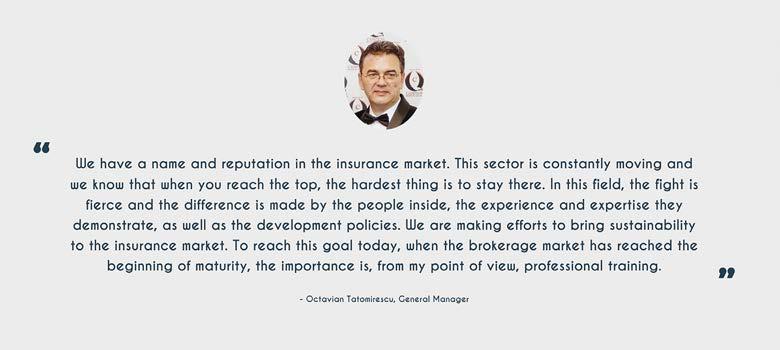
Telephone: +40 731 131 302
Address: 1 Mai Street, number 2, Ploiesti
Fax: +40 344 101533
Schedule: Monday-Friday: 08.15-17.15
www.campionbroker.com


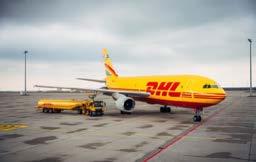
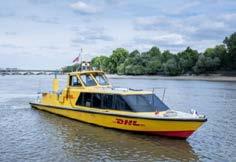





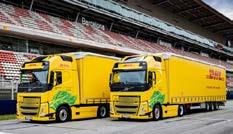



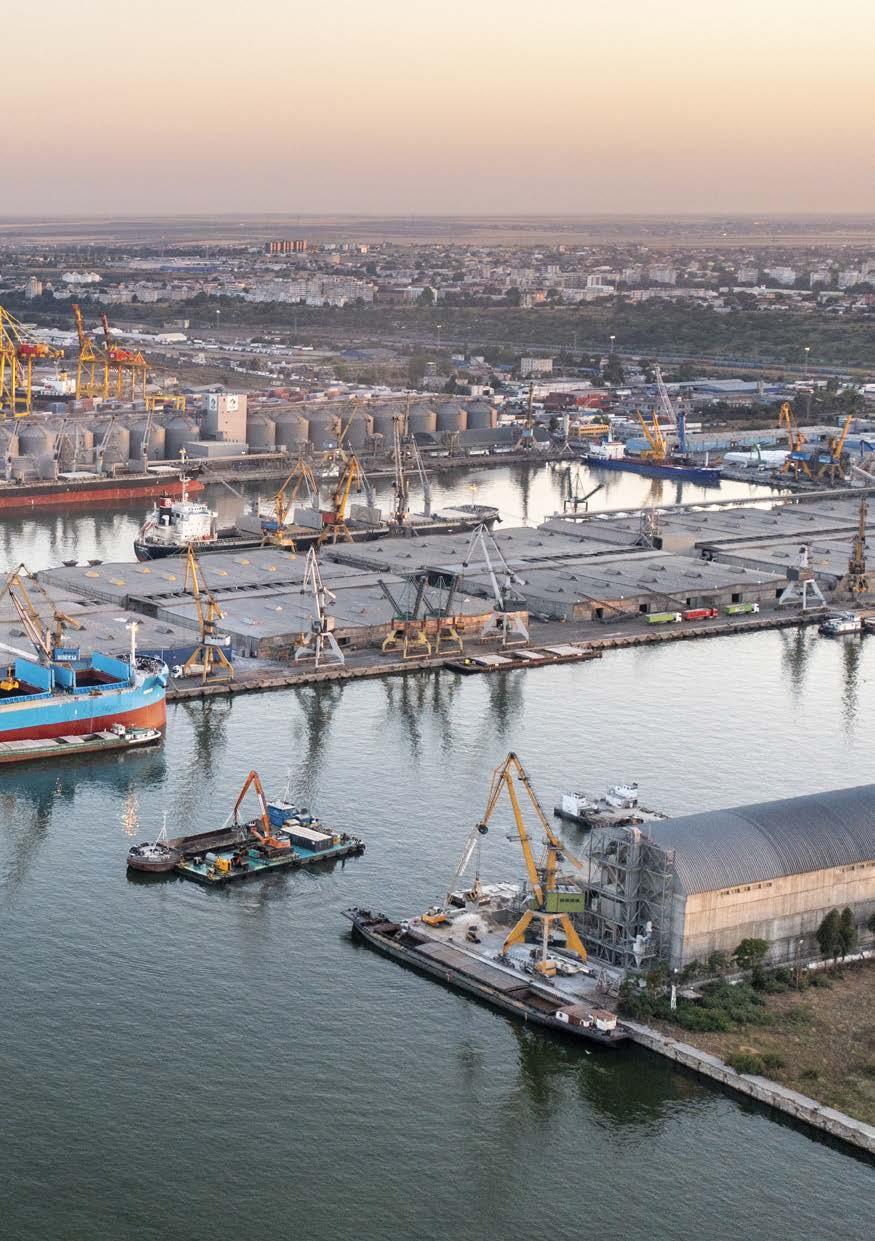

Country Information
BBC Country Profile: https://www.bbc.co.uk/news/ world-europe-17776265
UK Government Departments
British Embassy Bucharest: https://www.gov.uk/world/orga nisations/british-embassybucharest
DBT Romania:
https://www.gov.uk/world/orga nisations/department-forbusiness-and-trade-romania
Department for Business and Trade (DBT): https://www.gov.uk/governmen t/organisations/departmentfor-business-and-trade
Export Control Joint Unit (ECJU): https://www.gov.uk/governmen t/organisations/export-controljoint-unit
Foreign, Commonwealth and Development Office (FCDO): https://www.gov.uk/governmen t/organisations/foreigncommonwealth-development-o ffice
Great.gov.uk: www.great.gov.uk
HM Revenue and Customs: https://www.gov.uk/governmen t/organisations/hm-revenuecustoms
UK Border Control: https://www.gov.uk/uk-bordercontrol
UK Export Finance: www.ukexportfinance.gov.uk
Romanian Government Organisations and Trade Associations
Romanian Embassy London: https://londra.mae.ro/en/node/ 397
Romanian E-Government Portal: https://edirect.eguvernare.ro/SitePages/landingpag e.aspx
Romanian Customs: https://www.customs.ro/en
British Romanian Chamber of Commerce: https://brcconline.eu/
Romanian Business Club UK: www.romaniabusinessclub.co.uk/
Events and market access links
Research and Events 10 Times: https://10times.com/unitedkingd om/tradeshows
Events Eye: https://www.eventseye.com/fair s/c1_trade-shows_uk-unitedkingdom.html
Events Eye (Romania Trade Shows): www.eventseye.com/fairs/c1_ trade-shows_romania.html
Market research: https://www.business.gov.uk/ex port-fromuk/learn/categories/market-res earch/evaluateopportunities/how-to-create-an -export-plan/
Trade events: www.events.great.gov.uk/ehom e/trade-events-calendar/allevents
Entering the UK
EU Entry/Exit System: https://www.gov.uk/guidance/e u-entryexit-system
E-Visa: www.gov.uk/get-access-evisa
Immigration: www.gov.uk/update-uk-visasimmigration-account-details
Restricted Goods: www.gov.uk/bringing-goodsinto-uk-personal-use/banned-a nd-restricted-goods
Travel Insurance: www.gov.uk/guidance/foreigntravel-insurance
Travelling to Work: www.gov.uk/guidance/travel-toromania-for-work
UK Border Control: www.gov.uk/uk-border-control


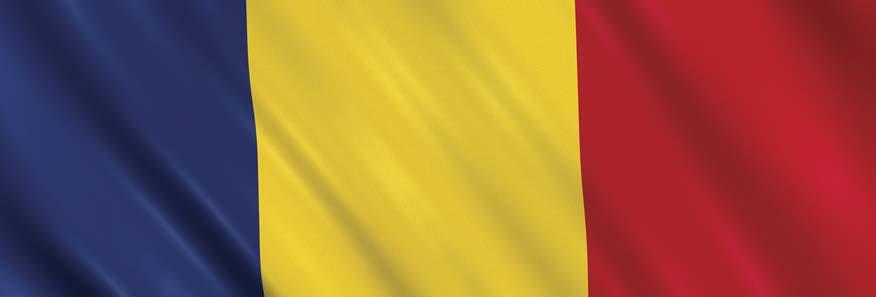
Location: Southeastern Europe, bordering the Black Sea, between Bulgaria and Ukraine
Area: 238,391 km2
Population: 19 million (2024)
Urban Population: 54.7% (2023)
GDP: $403.4 million (2025)
GDP Growth: 1.6% (2025)
GDP per Capita: $21,420 (2025)
Inflation: 5.7% (2024)
Unemployment: 5.4%
Public Dept: 61.6% (2025)
Current Account Balance: $30,52 billion (2025)
Trade (only goods) – in 2024: Exports - $100 billion Imports - $136.5 billion
Languages: Romanian (official) 91.6%, Hungarian 6.3%, Romani 1.2%, other 0.7%
Religions: Romanian Orthodox 85.3%, Roman Catholic 4.5%, Reformed 3%, Pentecostal 2.5%, other 4.7%
Government Type: Semi-presidential republic
Legal System: Civil law system
Currency: Romanian Leu
Climate: Temperate; cold, cloudy winters with frequent snow and fog; sunny summers with frequent showers and thunderstorms
Time Difference: UTC+2
Internet Country Code: .ro
National Holidays: Unification Day, 1st December (1918)
National Symbols: Golden eagle; national colours: blue, yellow, red
( Source – World Bank https://data.worldbank.org/country/romania or IMF https://www.imf.org/external/datamapper/profile/ROU )

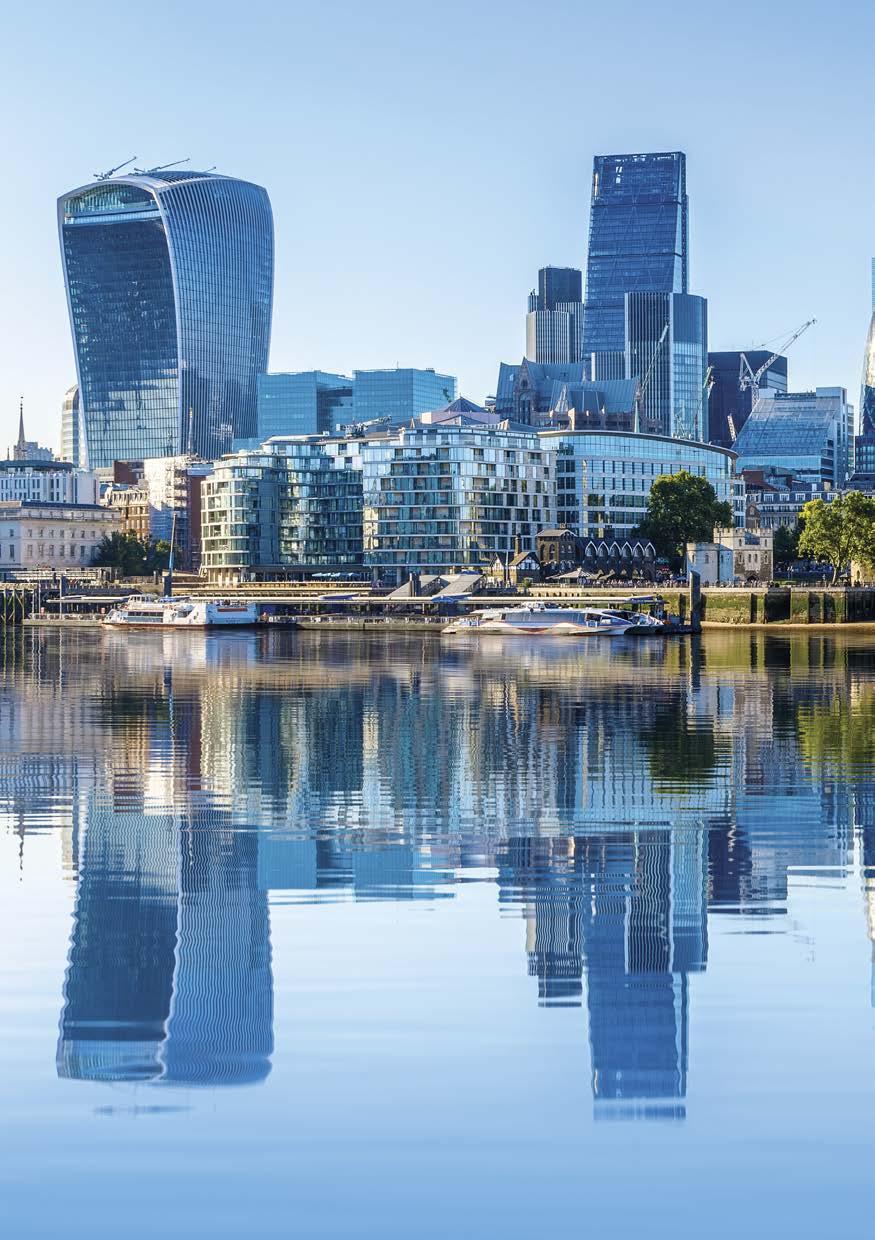


Geography & Population
243,610 km²
POPULATION
68,459,055
POPULATION GROWTH RATE +0.45% annually
URBAN POPULATION 84.6% (2023)
URBAN GROWTH RATE +0.8% annually
$1.076 trillion (2023)
$1.05 trillion (2023)
(Goods & Services)
Real GDP (2023)
$3.728 trillion
GDP Growth: +0.34% / GDP per Capita: $54,500
Inflation & Employment (2024)
3.3 % INFLATION
4.1% UNEMPLOYMENT
Public Debt: 138.2% of GDP (2023) Current Account Balance: -$74.863 billion Public Finances
(Source – CIA World Factbook)

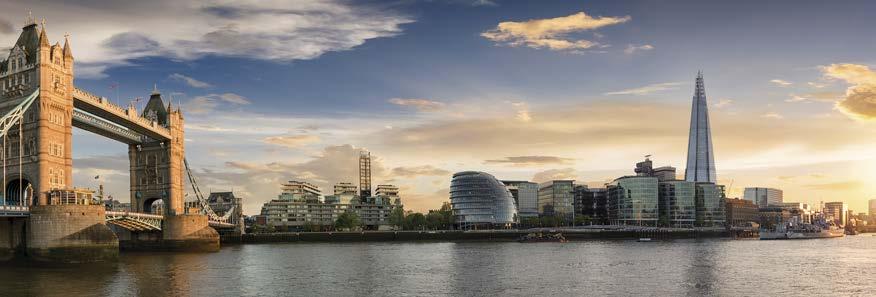
The United Kingdom is one of the world’s global hubs for business and trade. The UK has a strong and diverse economy that plays an important and pivotal role in international commerce. Over the UK’s prominent history, the nation has been one of the world’s most significant trading nations, with a long-standing industrial base and financial services sector. The nation also boasts success in the technology sector, manufacturing sector and the retail sector.
Although, Brexit caused challenges for UK business and trade, the nation has remained a leading business and trade centre by embracing the new opportunities that Brexit created, whilst providing many important networks for international trade. As economic conditions around the world change and grow, the UK continues to seek new global trade relationships.
The UK is an island nation situated in the Northwest of Europe, and it is made up of four countries: England, Northern Ireland, Scotland and Wales. The UK is surrounded by the Atlantic Ocean, the Irish Sea, the North Sea and the English Channel, allowing it to have a wide number of successful maritime networks.
The UK has a diverse landscape, including mountainous regions, rolling hills, flat plains, lakes, beaches and vast farmland. Key geographical areas include the Scottish Highlands, the Pennines Mountain Range, and the Lake District.
The climate in the UK is usually temperate, with mild winters and cool summers. It is important to note that the temperature and weather will vary across the different UK regions. For example, the west usually experiences wetter conditions, and the southeast usually experiences sunnier and much drier weather conditions.
In regard to natural resources the UK contains a variety, including coal, oil, natural gas, and fertile land for agricultural purposes.
The UK has a constitutional monarchy and a parliamentary democracy. The monarch, King Charles III is the head of the state, this role is largely ceremonial. Political power is held by the elected government.
The Executive Branch of the government is led by the Prime Minister, who is the head of the government. As of 2024, this is Keir Starmer of the Labour Party. The Prime Minister is responsible for running the country and is usually the leader of the political party who has the most seats within the House of Commons. The Prime Minister will select a Cabinet, where the chosen Senior Government Minsters will be responsible for a specific area, such as business, foreign affairs, health and education.
There are two houses that make up Parliament: The House of Commons consists of the elected members of parliament who make and pass laws; and the House of Lords which contains the unelected members, including Bishops, Hereditary Peers and Life peers, who make suggestions and review legislation.
Political parties in the UK include the Labour Party, the Conservative Party, the Liberal Democrats, the Scottish National Party (SNP), and the Green Party.
The UK’s Judiciary system is separate from the government and deals with legal matters.
The UK has a significant role within global business; it has a robust legal framework that governs corporate practices. The nation has a diverse economy with many key sectors, including finance, technology, manufacturing and services. UK laws and
international agreements regulate how business is carried out within the UK. Trading and carrying out business activities ethically are becoming increasingly important in the UK. The UK Government encourages businesses to uphold high standards in areas such as sustainability, corporate social responsibility (CSR), and transparency. As the UK Government has set out rules for businesses to lower their carbon emissions, businesses must align their activities in order to combat climate change and protect ecosystems.
Human Rights are a fundamental aspect of business in the UK. Companies are expected to respect human rights and uphold policies and procedures. This means they must ensure fair treatment, equality and inclusivity throughout the business’s activities. They must also show they do not discriminate, they allow unionisation and protect their workers from unfair treatment.
They also have to align these policies and procedures with the UN Guiding Principles on Business and Human Rights. UK legislation including the Modern Slavery Act 2015 sets out the framework to prevent forced labour and exploitation.
The UK has a significant role within the global and regional trade markets. After leaving the EU, the UK has formed and negotiated agreements with countries around the world, whilst also maintaining its close ties with the EU. This is through the Trade and Co-operation Agreement (TCA).
Other countries that have major trading agreements with the UK include Japan, the US, China, India and Australia. The UK is also part of many global trade partnerships including the CPTPP (Comprehensive and Progressive Agreement for Trans-Pacific Partnership).

The UK also continues to adapt to both Brexit and the consequences of COVID-19 through innovation, investment in green technologies, and efforts to strengthen trade relationships both within and outside of Europe.
Key business sectors within the UK include:
l Financial Services
l Technology and Innovation
l Manufacturing and Industry
l Retail and E-commerce
Brexit, in 2020, reshaped the UK’s trade and business landscape, as trade barriers appeared between the UK and the EU. Although, this has raised challenges, the UK still has a successful trade partnership with the EU, as well as with other countries around the world.
l In Transparency International’s latest Corruption Perception Index for 2024, the UK ranked 20th out of 180:
https://www.transparency.org /en/cpi/2024/index/gbr
l Stable and predictable legal system
l Strategic location
l Access to a vast skilled workforce
l Global financial hub (London)
l Strong consumer market
l Business-friendly environment
l Trade Agreements
l Support for innovation
l Well-developed infrastructure
l Cultural and language advantage
l Ease of setting up a business
l Established trade links with the EU
l Global talent pool
l Commitment to sustainability
l The Heritage Foundation’s 2025 Index of Economic Freedom ranked the UK 33rd out of 184 countries:
https://www.heritage.org/index /pages/country-pages/unitedkingdom
www.UK-Romania.com
The UK’s Department for Business and Trade (DBT) is a government department that is dedicated to increasing economic growth throughout the UK. Their mission is to support businesses, in all areas including setting up, investing, expanding and exporting. The aim of this mission is to create jobs and opportunities around the UK.
The Department for Business and Trade was previously the Department for International Trade and the Department for Business, Energy and Industrial Strategy. The merging of the two departments on the 7th February 2023, has allowed the new department to focus on businesses and international trade.
The Department has a set of priorities, which are as follows:
l To increase economic growth in all sectors
l To support businesses by improving their access to finance, and by creating an environment that has regulations that are pro-enterprise
l To increase the promotion of UK businesses around the world, in order to attract key investment that are high value
l To help businesses through free trade agreements and partnerships
l To protect consumers
l To remove barriers that affect fair competition
l To champion free trade
l To enhance supply chain resilience
l To strengthen economic security
l To increase innovation and growth through benefitting from the opportunities of Brexit
l To remove unnecessary regulatory barriers
l To advance legislation to establish minimum service levels for essential public services
l To review, reform, or repeal retained EU law
For more information visit the Department for Business and Trade’s website at:
(Source – Department for Business and Trade)
Events and Trade Shows are important ways of researching whether your goods or services will be successful within the UK. At these events you will be able to network with others in your sector/industry to gain important advice and guidance. You will also be able to test the market, attract customers, make sales, and liaise and appoint agents and distributors.
To find out if there any events or trade shows in the UK that will benefit your business visit the following websites: https://www.gov.uk/governmen t/organisations/departmentfor-business-and-trade
10 Times: https://10times.com/unitedking dom/tradeshows
British Expertise: https://www.britishexpertise.org /events
Events Eye:
https://www.eventseye.com/fair s/c1_trade-shows_uk-unitedkingdom.html
Great.gov.uk: https://www.events.great.gov. uk/ehome/trade-eventscalendar/all-events

When you arrive at a UK airport your passport will be checked. Your passport must be valid for the entire duration of your stay in the UK. A visa may be needed for travel to the UK, or an electronic travel authorisation may be necessary, this however depends on your nationality.
To check which documents you may need to bring into the UK, visit the UK Government’s webpage regarding Border Controls:
https://www.gov.uk/uk-bordercontrol/before-you-leave-for-th e-uk
What you can bring with you depends on which country you are travelling to the UK from. When you reach customs, you must declare:
l Any items that are over what your duty-free allowance allows
l If you are from outside the EU and are carrying more than €10,000 in cash
l If you wish to sell any goods you have with you
l Restricted or banned goods
Be aware that once you have declared your items, your person and bags will be checked.
If you are a British Citizen, you must bring your valid UK passport or a Gibraltar identity card.
If you are travelling from Ireland, you do not need documentation to travel to Northern Ireland.
Border Force Officers may ask to see identification of who you are and your nationality, if you are travelling to England, Scotland or Wales from Ireland.
Identification can include a valid or expired passport, UK Citizenship certificate, Gibraltar Identity card, or a driving licence.
If you are travelling to the UK from the EU, Switzerland, Norway, Iceland or Liechtenstein, you will need your valid passport, a valid Irish passport or a national identity card.
Identity documents must be valid for the whole duration of your stay. They must also be registered on your UK Visas and Immigration account. To set up an account or to access your account visit:
https://www.gov.uk/updateuk-visas-immigration-accountdetails
If you are planning to stay in the UK for work or education, you may need a visa.
You can travel with a national identity card to enter the UK, if you are from an EU country or Switzerland, Norway, Iceland and Liechtenstein and at least one of the following applies to you:
l If under the Jersey, Guernsey or the Isle of Man’s settlement schemes or the EU Settlement Scheme you have settled or pre-settled status
l You have a (or the equivalent of) an EU Settlement Scheme family permit
l You have a Frontier Worker Permit
l You are an S2 Healthcare Visitor
l You have a Service Provider from Switzerland visa
eVisa
If you have permission to stay in the UK for longer than 6 months or have status under the EU Settlement Scheme, then you will be given an eVisa.
To set up an eVisa and to make a UKVI account, see:
https://www.gov.uk/getaccess-evisa
Be aware that if you are travelling with children, you may be asked for proof of your relationship with the child/children. Make sure you have a copy of their birth or adoption certificate, divorce or marriage certificates, and if necessary, a letter from the parents giving you permission to travel with the child.
You do not currently need a COVID-19 test before you enter the UK. This is valid whether you are or are not vaccinated against COVID-19.
(Source – UK Border Control, Gov.uk)
Make sure you understand any health risks and which vaccinations you need before entering the UK.
For guidance on health risks and diseases, see the NHS’s Fit for Travel website at:
https://www.fitfortravel.nhs.uk/ advice#general-travel-healthadvice
Please be aware that not all of these will be applicable for travelling to the UK.
It is important that you have travel insurance before travelling to the UK. Although not always necessary as the NHS provides free healthcare, there may be costs for prescriptions, dental care, eye care, or if you decide to get private healthcare.
If you are travelling with medication make sure you check with the NHS’s Fit for Travel webpage for up-to-date information:
https://www.fitfortravel.nhs.uk/ advice/general-travel-healthadvice/travelling-with-medicines
Vaccinations that are recommended if you plan to stay in the UK for longer periods of time include:
l COVID-19 vaccination
l Hepatitis A & B (if you are at risk, such as if you have underlying health conditions)
l MMR
l Seasonal Flu vaccines
l Tetanus
Unless contracted abroad, Malaria is not normally contracted in the UK.
(Sources – Gov.uk, NHS)

The UK’s emergency number is 999, this will connect you to the police, fire or medical services. For smaller medical emergencies you can call 111.
There is a threat from terrorism in the UK. Incidents are rare, though it is important to remain vigilant in public places. In the case of a terrorist attack, stick to the Department of Foreign Affairs advice: “Run, Hide, Tell”.
Be cautious of pickpockets, and make sure you keep your bags and valuables with you. If possible, keep valuables locked away, such as in a safe in your hotel room.
Always use licensed taxis, or book hire cars through verified apps.
At night, make sure you stick to well-lit areas, stay where there are other people and if possible, travel with a group.
Be very careful when sharing your personal information with others, including your travel plans or financial information. Avoid discussing this in public places or with people you don’t know well.
Be careful when using public Wi-Fi, as not all connections are secure.
Make sure you keep your passport and other important documents safe.
(Sources – UK Police, Gov.uk)
The UK is shifting its automotive industry towards electric vehicles (EVs). There are opportunities for businesses that develop EV components, supply batteries, and can provide EV charging infrastructure.
There is an increasing demand in the UK for businesses that can provide aircraft parts, maintenance services, and sustainable aviation technologies.
As manufacturing processes move towards being automated, there is an increase in opportunities for businesses that can provide robotics, automation solutions, and advanced manufacturing techniques.
The UK has a number of successful production studios and is a leading exporter of film and television content. There are opportunities for those wishing to work within the UK’s film and television sector, as streaming services have increased the demand for high-quality content.
The UK has opportunities for businesses working in sustainable fashion. As demand increases for eco-friendly fashion, there is also demand for sustainable materials, designers and retailers.
The UK is a leader in the global music and events industry. With opportunities for businesses that can provide services for concert promotions, music festivals, streaming events, and theatre productions.
In the UK there is a demand for higher education and training, therefore there are opportunities for businesses that can offer online learning platforms, online learning programmes, and EdTech solutions.
After COVID-19 there was a rise in remote working in the UK, therefore there are now opportunities for businesses offering online professional development programs, upskilling programs, leadership training, digital skills training and project management.
The UK is a global hub in areas such as FinTech (Financial Technology), biotechnology, and clean energy. Start-ups and high-growth companies receive strong support from the UK Government.
London is a global centre for the insurance and reinsurance market. There are opportunities for companies that deal with underwriting, claims processing, and risk management services.
The UK plays a significant role in facilitating international trade. There are currently opportunities for businesses that provide services including trade
finance, supply chain financing, and currency exchange.
There are many high-quality food products in the UK, and it also has a large consumer market for both premium and organic products. Therefore, there is a competitive market for businesses within this sector.
As consumers become more aware of sustainability, there are increased opportunities in the UK for businesses that can offer meat alternatives, and dairy free products.
The UK is a leader in vaccines, oncology, and mental health treatments. There are opportunities for businesses that work within drug development and production.
Currently the healthcare industry is providing opportunities for businesses that can innovate, and produce new diagnostic equipment, wearable devices and medical devices. Within the UK, there are opportunities in both the public and private healthcare sectors, especially for medical technologies.
As the world becomes increasingly aware of keeping people healthy, both physically and mentally, the UK offers opportunities for businesses that produce dietary supplements, fitness equipment, and mental health solutions.

The UK is a global leader for offshore wind and solar, with major projects being currently underway. There are opportunities for businesses working with solar power in regard to both commercial and residential use.
Green Building Technologies
There is an increase in the demand for energy-efficient buildings and the retrofitting of old buildings to make them greener. Therefore, there are opportunities for businesses that can provide sustainable construction materials, energy-efficient heating systems, and solar panels.
The UK is looking for businesses to increase the number of electric vehicles on the road, to create greener public transport options, and install charging infrastructure. There are also further opportunities for those that can provide EV manufacturing services and battery production.
The UK has one of the most advanced e-commerce markets globally, especially in regard to online retail. There are opportunities for businesses that can offer delivery logistics, technological solutions and digital marketing solutions.
Luxury Goods and Fashion
In the UK there are opportunities within an increasing consumer market for luxury goods, including clothing, accessories, and watches.
The UK’s consumer market is increasingly demanding eco-friendly products, therefore there are opportunities for eco-conscious businesses to set up within
the UK. There is also emphasis on eco-friendly packaging, sustainable sourcing, and ethical labour practices.
Shipping and Logistics Infrastructure
Due to the UK’s strategic location as a trading hub, there are opportunities for businesses who offer logistics, shipping and port services.
Public Transport Systems
The UK has opportunities for businesses that can provide sustainable public transport solutions, as well urban mobility solutions.
The UK has opportunities for businesses that offer logistics, warehousing and supply chain optimisation solutions.
The UK Government is committed to helping UK businesses secure investments for projects in a number of sectors. These sectors include:
l Aerospace and Jet Zero
l Chemicals
l Civil Nuclear
l Clean Agri-tech
l Cyber Security
l Data and AI
l Fintech
l Green Finance and Innovation
l Healthcare and Life Sciences
l Hydrogen
l Medtech
l Multiple
l Offshore Wind
l Sustainable Infrastructure
l Technology
l Zero Emission Vehicles
Investment types include foreign direct investment and freeports.
For up-to-date investment opportunities in the UK, see the UK Government’s website at:
https://www.business.gov.uk/ invest-in-uk/investment
(Source – Gov.uk)
It is important when considering doing business with the UK that you make regular visits. To help with your research, it may be useful to contact others within your industry/sector. This will allow you to gain up-to-date knowledge and advice in order to help achieve success in the UK. This research can help you to understand where you may need to do further research and will help you to get a valuable insight into how the UK conducts business in your sector.
For further guidance visit:
www.great.gov.uk
Here you will find information regarding how to develop your marketing strategy, how to analyse your competitors, how to carry out a SWOT analysis, and guidance on customer/market segmentation.
You will also need to determine if there is a market for your product or service in the UK, if your pricing is competitive, and whether you may need to change the way in which you market your product, which includes its advertising and packaging.
It may be useful to look over your business model and adapt it where necessary.
To help you to decide whether doing business in the UK is right for you, you will need to ask yourself the following questions:
l Do you wish to import to or export from the UK, or both?
l How do you wish to establish yourself in the UK? (direct sales, franchising, licensing)
l Is it necessary for you to do business with the UK?
l Is the UK part of your wider plan?
l Can you carry out a SWOT analysis of your own company and others?
l Is there already a market for your product/service in the UK?
l What are your unique selling points (USPs)?
l Can you be competitive in the UK?
l Do you have the time and resources to be successful in the UK? (Product demand, communication services, after sales services)
l Do you know how to secure payment?

l Do you know how to secure potential partnerships, agents or distributors?
l Do you know how to reach potential customers?
To gain the answers to these questions it is important that you carry out extensive research and reach out to those in your sector for advice and guidance.
Once you have carried out your initial research, it is important that you carry out an Export Plan. This requires you to find and map out your best route for entering the UK market.
For help and guidance on creating an Export Plan, visit:
https://www.business.gov. uk/export-fromuk/learn/categories/mark et-research/evaluateopportunities/how-to-cre ate-an-export-plan/
Visiting trade shows in the UK can help you to research whether your product/service will be a viable competitor within the UK market.
Information on events and trade shows can be found at:
https://www.events.great.gov .uk/ehome/trade-eventscalendar/all-events
Use the filter tool to search for events and trade shows regarding the UK.
(Source – Gov.uk)
If you are planning to set up a company or business in the UK, it is advised that you check the UK Government’s guidance.
This guidance can be accessed at:
It is advised that you get in touch with a local lawyer or accountant to get the information and guidance you will need to decide which business type will best suit your business goals and targets.
It is important to check which trade agreements the UK has and with which countries, when you are preparing to export to the UK. For countries within the EU, the UK/EU and EAEC: Trade and Cooperation Agreement will outline the legislation for trade between the UK and countries that are part of the EU.
For more information visit:
https://www.gov.uk/set-upbusiness https://www.gov.uk/governm ent/publications/ukeu-andeaec-trade-and-cooperationagreement-ts-no82021
For countries that are outside of the EU, see the UK Government’s website to find out which trade agreements will affect you.
Visit the webpage at:
https://www.gov.uk/guidance /uk-trade-agreements-ineffect
If planning to export to the UK, it may be best to work with a partner or agent within the UK. They will be more familiar with the UK markets and will be able to give you guidance and advice. They can help you to seek new business, keep in contact with customers and keep you up to date on market trends.
Before making a decision, ensure you do research surrounding potential partners, agents or advisors. You need to look at their reputation, resources, market ability and success rate. Be aware of those that have products or services that are similar to yours.
For more information and guidance ontact the Department for Business and Trade at:
https://www.gov.uk/governmen t/organisations/departmentfor-business-and-trade
Direct export means that you sell your goods straight to the customer yourself, without using a distributor. This will involve you taking care of the logistics of marketing, selling, exporting, getting paid and after sales services.
This may be a good option for you if you are selling online.
Licensing and Franchising
Franchising and licensing may be an option for your business within the UK, as it can reduce the initial set up costs. Though it is important that you make sure you set up legal agreements first.
Make sure you carry out due diligence checks on any licensees. This is to ensure that your intellectual property (IP) stays protected.
Check how to license your IP in the UK at:
https://www.gov.uk/guidance/li censing-intellectual-property
Consumer Protection
When selling to consumers, make sure you comply with the UK’s relevant consumer protection laws.
For more information visit the UK Government’s website:
https://www.gov.uk/governmen t/collections/consumerprotection-law-for-businesses
You may need to take out professional indemnity insurance when doing business with the UK.
For more information contact the Department for Business and Trade, at:
https://www.gov.uk/governmen t/organisations/departmentfor-business-and-trade
(Source – Gov.uk)
Contact your bank, accountant or financial advisor when setting up your contracts for exporting and doing business in the UK. Your contract should include your policies for payment. To make sure payments are secure, make sure your terms include the use of partial payments, deposits, letter of credit, or cash in advance of exportation.
Only use open account terms if you have already established a successful trading relationship within the UK.

All payments can come with risks; therefore, you must make sure you are confident you will be paid following the terms of your contract before you export your goods or services.
Before selling to the UK, make sure you have fixed your exchange rates. Before anyone signs a contract, you need to decide whether you will sell your goods or services in Pound Sterling or in the currency of the country your business originates from.
It is advised that before you fix your exchange rate, you seek guidance and financial advice from an expert.
(Source – Gov.uk)
If you plan to export to or sell goods in the UK, they must conform to the UK’s legal requirements. Products and services must be safe, meet all the relevant safety requirements, have clear instructions for use, and warnings regarding misuse.
For more information read the UK’s Consumer Rights Act 2015:
https://www.legislation.gov.uk/ ukpga/2015/15/contents
In order to export controlled goods to the UK, you will normally need an export licence. This license is usually necessary if the goods you wish to export are listed on the UK Strategic Export Control List, if there are concerns regarding the products end use or the end user, or if they are subject to trade sanctions.
These licenses are issued by the UK’s Export Control Joint Unit (ECJU).
For more information visit Gov.uk’s website at:
https://www.gov.uk/guidance/e xporting-controlled-goodsafter-eu-exit
To contact the Export Control Joint Unit (ECJU), visit their website for their contact details:
There are restrictions on certain goods that cannot be brought into the UK, these include:
l Controlled drugs
l Weapons
l Self-defence sprays
l Animal or plant species that are endangered
l Rough diamonds
l Indecent or obscene material
l Personal imports of meat and dairy products from outside the EU
For more information visit Gov.uk’s website at: https://www.gov.uk/governmen t/organisations/export-controljoint-unit
https://www.gov.uk/bringinggoods-into-uk-personal-use/bann ed-and-restricted-goods
Product liability insurance covers the costs incurred if a product you have sold has been faulty and caused injury. It is important that you take out product liability insurance if you are selling, manufacturing, supplying or designing physical products.
For more information on product liability insurance, see the Association for British Insurers webpage at:
https://www.abi.org.uk/product s-and-issues/choosing-theright-insurance/business-insura nce/liability-insurance/productliability-insurance
(Source – Gov.uk, Export Control Joint Unit, Association for British Insurers)
Some countries have a double taxation agreement with the UK. This means that some taxes, when paid in one country, will be deducted from the other country. Therefore, the tax is not paid twice.
For more information on the UK’s tax treaties, and which countries have double tax agreements with the UK, see Gov.uk’s website at:
https://www.gov.uk/governmen t/collections/tax-treaties
VAT is a tax that is charged on most goods and services that are sold by businesses. The standard rate for VAT is 20%, though on certain items there is a reduced rate of
5% or they can be zero-rated, this depends on the product being sold. VAT is collected by businesses during the sale of a product and is then paid to HMRC.
For more information on the UK’s VAT rates see Gov.uk’s website at:
https://www.gov.uk/vat-rates
In the UK, excise duty is placed on products including alcohol, cigarettes, hydrocarbon oils, and biofuels.
For more information on excise duty in the UK see Gov.uk’s website at:
https://www.gov.uk/governmen t/publications/excise-tax-typesexcise-duty-rates-and-supplem entary-guidance/goods-liableto-excise-duty
(Source – Gov.uk)
If you wish to export to the UK, you will need to make sure you have the correct documentation from both your country of origin and from the UK. When exporting to the UK, it is important that you have a commercial invoice, a packing list and a certificate of origin.
You may also need the following:
l Bill of Lading
l Insurance certification
l Export licence

l Customs declaration
l EORI number (if exporting from the EU)
l ATA Carnet (if temporarily exporting goods)
If you plan to bring goods into the UK through your baggage, you will have to follow the rules set out by the UK Government. This includes declaring the goods at customs and making sure you have the correct documentation.
For more information see Gov.uk’s website at:
https://www.gov.uk/guidance/b ringing-commercial-goods-intogreat-britainin-your-baggage
All products that are exported to the UK must have labels that are not misleading, therefore, they must be accurate, especially on information regarding:
l Price
l Quantity
l Size
l Materials used
l How it was made
l Who made it
l Origin of manufacturing
l What it does
l Who it was endorsed by
For more information regarding product labelling, and for specific information for certain products, see Gov.uk’s website at:
https://www.gov.uk/productlabelling-the-law
(Source – Gov.uk)
If you do not have specific knowledge on shipping internationally, it may be a better option for your business to use a freight forwarder. They will have a vast knowledge on shipping overseas and will be able to ship your goods for you. They will also have the necessary information on which documentation will be needed and how to navigate customs.
The UK’s Post Office may be able to help you ship goods to the UK, see their website for more information:
https://www.postoffice.co.uk/ mail
For information on restricted and banned goods see:
https://www.postoffice.co.uk/m ail/what-can-i-send
To minimise any risk of misunderstanding, make sure you have a clear contract written out for all international commercial transactions.
A set of widely used commercial terms, known as incoterms, are used in international trade, these clarify the following:
l The delivery address for the goods
l Who will deliver them
l Who arranges the transportation
l Who handles customs
l Who pays/arranges the insurance
l Who pays the duties/taxes
Incoterms are set out by the International Chamber of Commerce (ICC), for more information see their website at:
https://iccwbo.org/businesssolutions/incoterms-rules/inc oterms-2020
In regard to services, incoterms do not apply. For services, a Service Level Agreement will be needed. This agreement needs to outline what the service will provide and what will be achieved by it.
(Source – Gov.uk, Post Office, International Chamber of Commerce)
Language
English is the dominant language in the UK, it is universally used throughout business, the government and education. However, due to the UK’s diverse multicultural population, there are a number of other languages spoken, including Arabic, Polish, Punjabi, Bengali and Urdu.
In regard to business, multilingualism is an asset, especially in the retail sector, in customer services, and for businesses that deal with international trade. There are certain companies that will hire employees that can speak languages that are dominant in international markets, including Mandarin, French, Arabic and Spanish.
In the UK, the dress code for business will vary depending on which sector/industry you work within. Usually, the dress code will be formal in an office setting, such as smart business attire, this includes suits with ties and tailored dresses.
For jobs that are more creative, the dress code tends to lean towards smart-casual, as part of a more relaxed dress code.
Many companies since COVID-19 have opted for a more relaxed dress code, though it is important to remain neat and smart. The way you dress is important if your role is client-facing.
When attending a meeting in the UK it is essential that you arrive on time, you are polite, and you remain professional. It is important that you arrive on time, lateness can be seen as rudeness and as disrespectful.
Small talk is often used to start a meeting, in order for those within the meeting to get to know one another, after this the meeting will begin formally.
Communication is key and it is important to listen and take turns when speaking.
Handshakes are common before and after the meeting has occurred, though this is not always the case for more informal meetings.

Don’t expect an answer right away, as it is important in the UK to carefully consider any decisions that need to be made.
Standard business hours in the UK are 9am to 5pm, Monday to Friday, this is for most offices, government services and corporate settings. Businesses in the retail sector tend to be open later, with shops typically closing between 5:30pm and 7pm. They may also have opening hours during the weekend, though they may be open for fewer hours.
Supermarkets are also usually open for longer hours, and in some cases smaller convenience stores are open 24/7.
Due to COVID-19, there has been a rise in businesses allowing flexible hours and remote working for their employees.
The UK has many strengths in regard to business and trade, however, there are a few challenges you must be aware of, including:
Post-Brexit Trade Barriers
Several industries in the UK have been affected by Brexit, and the barriers that occurred as a result. The agriculture and fishing industries were highly effected. This was due to barriers including complexities with new regulations, new custom checks, and changes to the freedom of movement.
Labour Shortages
There are currently labour shortages in many sectors within the UK. These sectors include the hospitality sector, the healthcare sector, and the construction
sector. These shortages can be linked back to Brexit, as immigration policies changed.
Global Economic Uncertainty
Problems on the global market have led to economic barriers and problems. Including inflation, meaning the cost of products and services have risen considerably, energy prices have risen, and there have been many disruptions to global and regional supply chains.
COVID-19
The effects of COVID-19 are still impacting the UK, as there were many job cuts, increased business costs and supply chain disruptions. The sectors that were mostly impacted are the financial sector, the manufacturing sector, and the retail sector.
The cost of living in the UK has risen over the past few years, this includes the cost of goods, services, housing and renting commercial spaces. This has made it difficult for both businesses and employees, by creating affordability challenges, this is especially happening in London.
If you are UK national, you normally reside in the UK, a business/organisation/charity that works in the UK, or a Scottish Partnership, it is illegal for you to use bribery either in the UK or abroad.
For more information of the UK’s antibribery laws visit the UK Government’s website:
(Source – Gov.uk) https://www.gov.uk/antibribery-policy
It is important to understand that IP is territorial. This means that once you have registered them in a country they are only protected in that country, to protect them in other countries you must register them in those countries as well. Therefore, make sure you register your IP in every export market you trade within.
Make sure you contact a lawyer who specialises in Intellectual Property, as they can help you to register for IP protection.
For more information about Intellectual Property in the UK and how to find a local lawyer, visit the UK Government’s website:
https://www.gov.uk/guidance/ seeking-intellectual-propertyadvice
(Source – Gov.uk)
Protective Security Advice
The UK Government has guidance on protective security, including information related to crime and fraud protection in regard to international trade.
To view this guidance, see their website at:
https://www.gov.uk/guidance/cr ime-and-fraud-prevention-forbusinesses-in-international-tra de
(Source – Gov.uk)
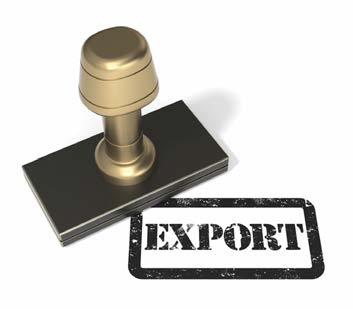

In a world that demands connection and collaboration, the Romanian Business Club UK stands as a powerful platform uniting Romanian entrepreneurs, professionals, and policy-makers across the United Kingdom. Founded in 2024, we are a growing community that exists to empower Romanian talent, foster collaboration between Romania and the UK, and amplify our collective voice within the business and political landscape.

The Romanian Business Club unites the Romanian community in the UK by building meaningful connections across business, culture, and politics. We aim to foster collaboration, investment, and mutual understanding between Romania and the United Kingdom, empowering entrepreneurs through strategic networking, mentorship, and high-level representation.
Our mission is to build a strong, inclusive platform that drives sustainable development and shared success.
We envision a thriving, influential Romanian business network in the UK—one that shapes policy, promotes leadership, and drives long-term success for current and future generations.
Through a diverse and dynamic membership of entrepreneurs, professionals, academics, and decision-makers, we strive to create a bridge of opportunity between Romania, the UK, and Europe—sharing best practices and elevating our collective impact. www.romaniabusinessclub.co.uk
At the Romanian Business Club UK, we believe community is the foundation of success. Our activities are focused on four key pillars:
• Networking & Community Building
We host exclusive events, roundtables, and meetups throughout the UK and Europe— creating lasting relationships among Romanian and UK business leaders.
• Strategic Mentorship & Knowledge Sharing
We provide access to expert-led workshops, practical tools, and shared learning that empower our members to navigate the UK business environment with confidence.
• Business Visibility & Promotion
Members gain exposure through social media campaigns, event features, and targeted promotion across our growing channels.
• Policy Representation & Influence
We advocate for Romanian interests and visibility in the UK, representing our community in key dialogues across government, trade, and cultural sectors.
We invite you to be part of something meaningful. Whether you’re a business owner, corporate leader, startup founder, or aspiring entrepreneur, the Romanian Business Club UK is here to support your journey.
Visit us at:
www.romaniabusinessclub.co.uk
At the Romanian Business Club UK, we believe in shared success, cultural pride, and a powerful future for the Romanian diaspora in the United Kingdom.
By bringing together visionaries from all sectors, we are shaping a legacy of influence, innovation, and inclusion for generations to come.
Together we can be more!
We are business. We are community. Welcome to the Romanian Business Club UK.

Global Expansion. Strategic Connections. Measurable Growth.

At bizNis International, we empower ambitious businesses to scale globally by unlocking strategic markets, forging high-value partnerships, and navigating complex trade environments with confidence.
We are a world-leading trade and investment company operating across six continents, facilitating targeted global trade missions, securing joint ventures, and driving foreign direct investment for businesses ready to grow.

Direct access to decision-makers, bespoke B2B, B2G, G2G opportunities across priority sectors.
Market entry strategies, partner sourcing, commercial deal structuring and implementation.

Access to governments, chambers, embassies, and industry leaders for accelerated market penetration.
Over £700M+ in trade deals facilitated, delivering measurable results for our clients.
Ready to Expand Globally? Let Us Bring The World To You. team@biznis.international / www.biznis.international



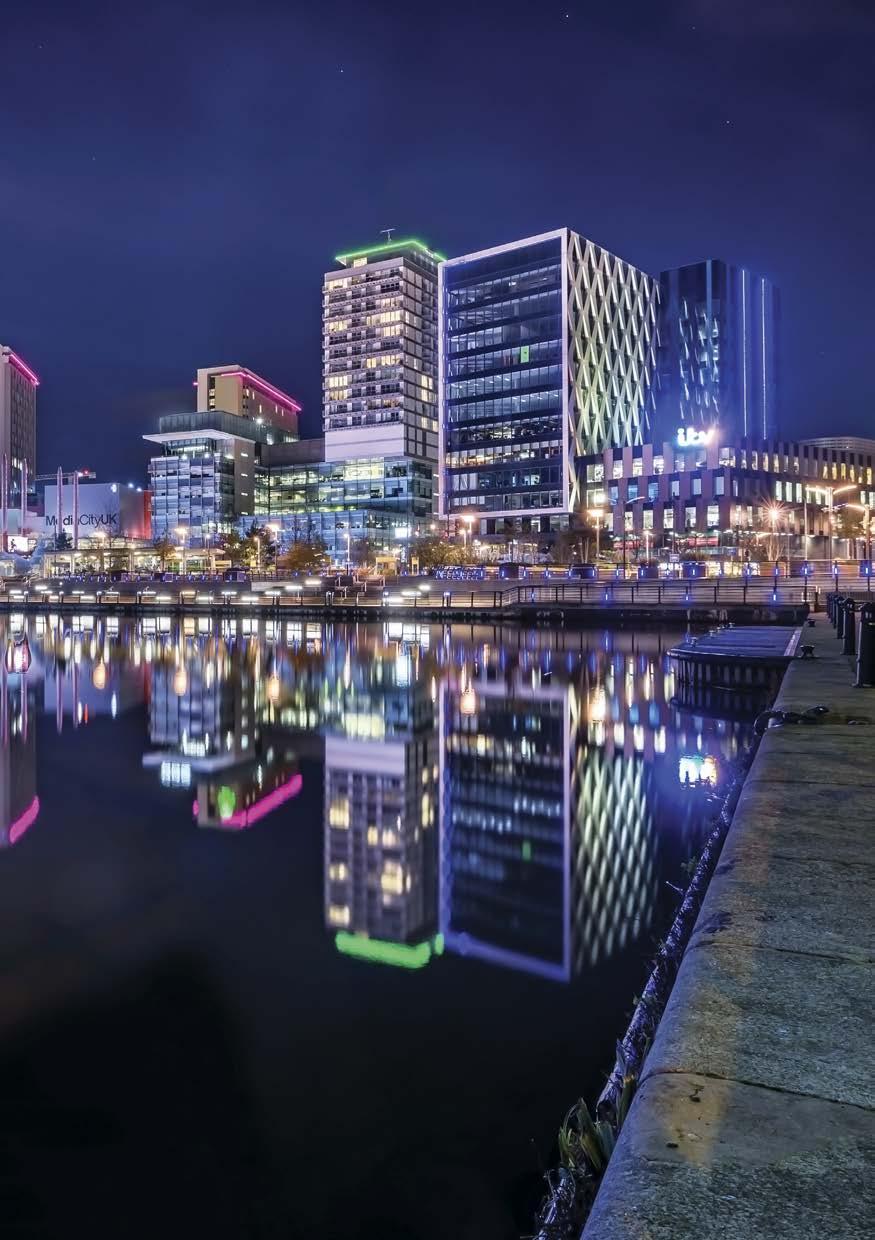


Country Information
BBC Country Profile: news.bbc.co.uk/1/hi/country_pr ofiles/default.stm
World Rankings
CIA World Factbook: https://www.cia.gov/the-worldfactbook/countries/united-king dom/#economy Heritage.org: https://www.heritage.org/index /pages/country-pages/unitedkingdom
Transparency International: www.transparency.org/en/cpi/2 024/index/gbr
UK Government Departments
Department for Business and Trade (DBT): https://www.gov.uk/governmen t/organisations/departmentfor-business-and-trade
Export Control Joint Unit (ECJU): https://www.gov.uk/governmen t/organisations/export-controljoint-unit
Foreign, Commonwealth and Development Office (FCDO): https://www.gov.uk/government/ organisations/foreigncommonwealth-development-offi ce
Great.gov.uk: www.great.gov.uk
HM Revenue and Customs: https://www.gov.uk/governmen t/organisations/hm-revenuecustoms
Intellectual Property Office (IPO): https://www.gov.uk/government/org anisations/intellectual-propertyoffice
UK Border Control: www.gov.uk/uk-border-control
UK Export Finance: www.ukexportfinance.gov.uk
Other Organisations
British Chambers of Commerce: www.britishchambers.org.uk
British Council: www.britishcouncil.org
British Expertise International: www.britishexpertise.org
British Franchise Association (BFA): https://www.thebfa.org/
Confederation of British Industry (CBI): www.cbi.org.uk








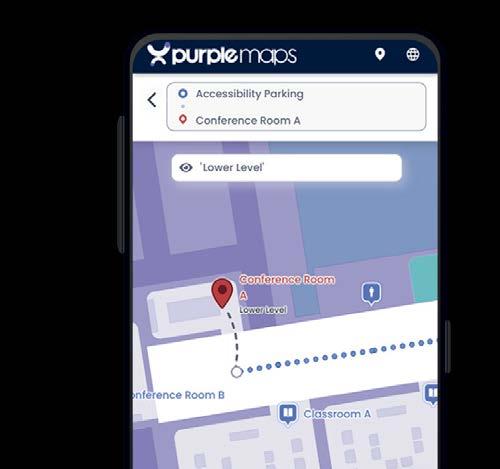


Institute of Directors (IoD): www.iod.com
International Monetary Fund (IMF): www.imf.org/en/Home
National Protective Security Authority (NPSA): www.npsa.gov.uk
Organisation for Economic Co-operation and Development (OECD): www.oecd.org/en.html
10 Times: 10times.com/unitedkingdom/tr adeshows Research and Events
British Expertise: www.britishexpertise.org/events
Events Eye: www.eventseye.com/fairs/c1_tr ade-shows_uk-unitedkingdom.html
Market research: www.business.gov.uk/exportfrom-uk/learn/categories/mark et-research/evaluateopportunities/how-to-create-an -export-plan/
Trade events: www.events.great.gov.uk/ehom e/trade-events-calendar/allevents
Health
Before entering the UK: https://www.gov.uk/uk-bordercontrol/before-you-leave-for-the -uk
E-Visa: www.gov.uk/get-access-evisa
Immigration: www.gov.uk/update-uk-visasimmigration-account-details
Restricted Goods: www.gov.uk/bringing-goodsinto-uk-personal-use/banned-a nd-restricted-goods
UK Border Control: www.gov.uk/uk-border-control
Health Advice: https://www.fitfortravel.nhs.uk/ advice#general-travel-healthadvice
Travel Health: www.travelhealth.co.uk
TravelHealthPro: www.travelhealthpro.org.uk
Travelling with Medicine: https://www.fitfortravel.nhs.uk/ advice/general-travel-healthadvice/travelling-with-medicines

Anti-Bribery: www.gov.uk/anti-bribery-policy
British Standards Institution (BSI): www.bsigroup.com/en-GB
Consumer Protection Law: www.gov.uk/government/collec tions/consumer-protection-lawfor-businesses
Consumer Rights Act: www.legislation.gov.uk/ukpga/2 015/15/contents
Export Control Joint Unit (ECJU):
https://www.gov.uk/governmen t/organisations/export-controljoint-unit
Intellectual Property (IP): https://www.gov.uk/guidance/s eeking-intellectual-propertyadvice
Intellectual Property Office (IPO): https://www.gov.uk/governmen t/organisations/intellectualproperty-office
Liability Insurance: https://www.abi.org.uk/product s-and-issues/choosing-theright-insurance/business-insura nce/liability-insurance/productliability-insurance/
www.UK-Romania.com
National Physical Laboratory: www.npl.co.uk
Licensing IP: https://www.gov.uk/guidance/li censing-intellectual-property
UK Police: www.police.uk
Crime and Fraud Prevention: https://www.gov.uk/guidance/cr ime-and-fraud-prevention-forbusinesses-in-international-tra de
Banned and Restricted Goods: www.postoffice.co.uk/mail/whatcan-i-send
Commercial Goods in your Baggage:
https://www.gov.uk/guidance/b ringing-commercial-goods-intogreat-britainin-your-baggage
Department for Business and Trade (DBT): https://www.gov.uk/governmen t/organisations/departmentfor-business-and-trade
Excise Duty:
https://www.gov.uk/governmen t/publications/excise-tax-typesexcise-duty-rates-and-supplem entary-guidance/goods-liableto-excise-duty
Export Control Joint Unit (ECJU): https://www.gov.uk/governmen t/organisations/export-controljoint-unit
Exporting Controlled Goods: https://www.gov.uk/guidance/e xporting-controlled-goodsafter-eu-exit
HM Revenue and Customs: https://www.gov.uk/governmen t/organisations/hm-revenuecustoms
Incoterms: https://iccwbo.org/businesssolutions/incoterms-rules/incot erms-2020/
International Post: www.postoffice.co.uk/mail
Investment Opportunities: https://www.business.gov.uk/in vest-in-uk/investment
Product Labelling: www.gov.uk/product-labellingthe-law
Setting up a Business: www.gov.uk/set-up-business
EU Trade Agreement: https://www.gov.uk/governmen t/publications/ukeu-and-eaectrade-and-cooperation-agreem ent-ts-no82021
Tax Treaties: https://www.gov.uk/governmen t/collections/tax-treaties
UK Trade Agreements: www.gov.uk/guidance/uk-tradeagreements-in-effect
Economic Information
The Economist: www.economist.com
Trading Economics: www.tradingeconomics.com
Trade Statistics
National Statistics Information: www.gov.uk/search/research-andstatistics
Office for National Statistics: www.ons.gov.uk
VAT Rates: www.gov.uk/vat-rates
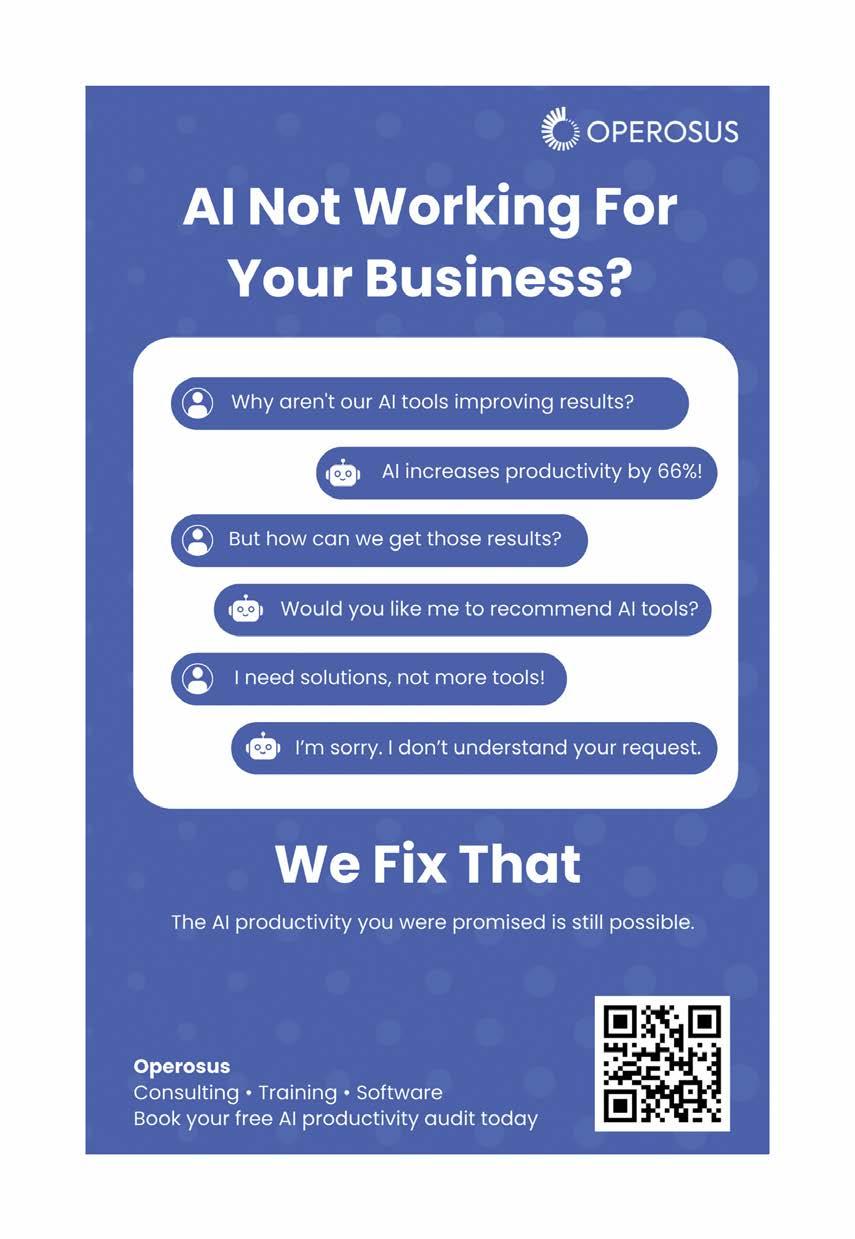

Finance
British Insurance Brokers’ Association: www.biba.org.uk
UK Export Finance: www.ukexportfinance.gov.uk
Intellectual Property
Intellectual Property (IP): www.gov.uk/guidance/seekingintellectual-property-advice
Intellectual Property Office (IPO): https://www.gov.uk/government/or ganisations/intellectual-propertyoffice
Licensing IP: https://www.gov.uk/guidance/li censing-intellectual-property
World Intellectual Property Organization (WIPO): https://www.wipo.int/portal/en/ index.html
Communication
International Language Association: www.icc-languages.eu


Location: Western Europe, islands, including the northern one-sixth of the island of Ireland; between the North Atlantic Ocean and the North Sea; northwest of France
Area: 243,610 km2
Population: 68,459,055 (2024)
Urban Population: 84.6% (2023)
Real GDP per capita: US $54,500 (2023)
Languages: English, Scots (about 30% of the population of Scotland), Scottish Gaelic (about 60,000 speakers in Scotland), Welsh (about 20% of the population of Wales), Irish (about 10% of the population of Northern Ireland), Cornish (some 2,000 to 3,000 people in Cornwall)
Religions: Christian (includes Anglican, Roman Catholic, Presbyterian, Methodist), 59.5%, Muslim 4.4%, Hindu 1.3%, other 2%, unspecified 7.2%, none 25.7%
Government Type: Parliamentary constitutional monarchy; a Commonwealth realm
Legal System: Common law system; has nonbinding judicial review of Acts of Parliament under the Human Rights Act of 1998
Currency: Pound Sterling
Climate: Temperate; moderated by prevailing southwest winds over the North Atlantic Current; more than onehalf of the days are overcast
Time Difference: UTC 0
Internet Country Code: .uk
National Symbols: Lion, Tudor rose, oak (England); lion, unicorn, thistle (Scotland); dragon, daffodil, leek (Wales); shamrock, flax (Northern Ireland); national colours: red, white, blue (Britain in general); red, white (England); blue, white (Scotland); red, white, green (Wales)
(Source – CIA World Factbook)
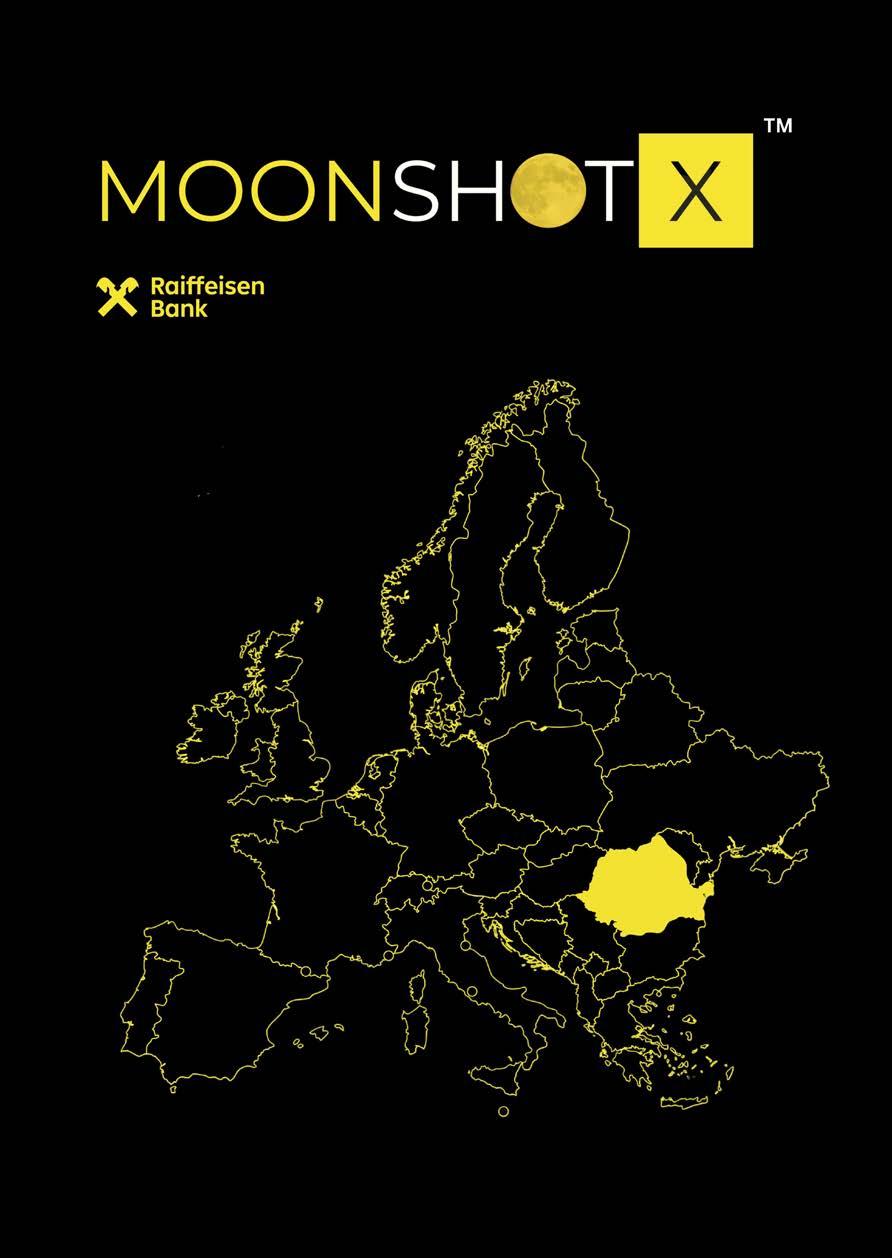





STEVEN A. ALTMAN AND CAROLINE R. BASTIAN

In partnership with

1
2
Faster forecast growth, greater uncertainty: Global trade is forecast to grow at a modestly faster pace over the next 昀ve years than during the preceding decade. However, record high uncertainty about future trade policies clouds the outlook.
3
Trump tari昀 impact: Even if all tari昀 increases proposed by the Trump administration are implemented and countries retaliate in turn, global trade is forecast to continue growing – but at a much slower pace.
4
Made-in-China content 昀nding new routes to U.S.: The share of U.S. imports coming directly from China continues to fall, but U.S. reliance on made-in-China content has not declined substantially. U.S. imports from other countries contain more inputs from China, and U.S. direct imports from China may be underreported.
5
Global geopolitical shifts limited: Geopolitically driven shifts in global trade patterns remain limited and appear to have stalled in 2024. While trade between blocs of close allies declined relative to trade within these blocs in 2022 and 2023, there were no further declines over the 昀rst nine months of 2024.
Recent growth leaders: Three countries ranked among the top 30 worldwide on both the speed (growth rate) and the scale (absolute amount) of their goods trade volume growth over the past 昀ve years: the United Arab Emirates, Viet Nam, and Ireland.
Forecast future growth leaders: During the next 昀ve years, India, Viet Nam, Indonesia, and the Philippines are forecast to rank among the top 30 for both speed and scale of trade growth. India also stands out as the country with the third largest absolute amount of forecast trade growth (6% of additional global trade), behind only China (12%) and the United States (10%). 6

Standout regions: South Asia, Sub-Saharan Africa, and Southeast Asia are forecast to achieve much faster trade volume growth than all other regions from 2024 to 2029. However, slower-growing Europe is forecast to generate a larger share (30%) of the world’s total trade growth. High income economies are forecast to generate 58% of trade growth, while low- and middle-income economies generate 42%. 7
Long-distance trade going strong: Contrary to predictions that recent disruptions would lead to more regionalized trade patterns, trade took place over the longest average distance on record during the 昀rst nine months of 2024 (5,000 km). The share taking place inside major geographic regions declined to a new low (51%). 8
Trade leaders by sector: Most trade is in manufactured goods, but price increases have boosted the value of trade in mineral fuels. From 2017 to 2022, the categories with the largest increases in the value of goods traded were mineral fuels, electrical machinery and equipment, industrial machinery, and pharmaceuticals. 9
Large headroom for trade growth: Even after decades of increases in the integration of the world economy via trade, only 21% of the value of all goods and services produced around the world ultimately ends up in a di昀erent country from where it was produced. There is still very large potential for future trade growth.








Head Hunting Agency | IMD is a recruitment company based in Romania, specialized in identifying, evaluating, and placing the most suitable talent for both national and international businesses. Founded with the aim of combining a people-centered approach with modern HR solutions, the agency offers integrated services in headhunting, tailored recruitment, staff leasing, and strategic HR consulting.
With a young, dynamic, and adaptable team, Head Hunting Agency focuses on building longterm partnerships by providing each client with a personalized and efficient experience. We serve companies in Romania and Western Europe, especially in Germany, Italy, and the United Kingdom, while emphasizing quality, transparency, and professionalism.
Among the agency’s key strengths are rapid response time, rigorous candidate screening, and the ability to adapt recruitment processes to the specific needs of each industry, including manufacturing, logistics, retail, and transportation.
In an increasingly competitive labor market, Head Hunting Agency | IMD stands as a reliable partner for employers, bridging the gap between workforce needs and career goals.
Our mission is to redefine recruitment standards in Central and Eastern Europe through innovation, results-driven strategies, and a total commitment to both client and candidate success.
Celebrating 10 years on the local market, the agency built a solid reputation, serving more than 300 clients, approaching more than 26,600 candidates, having an average NPS score of 92%, an average success rate of above 90% and repeated business from numerous clients and candidates.
Since 2024 we’ve partnered with IMD International Executive Search Group, a Top-20 global search organization with over 20 offices in over 20 countries, providing instant access to a world-class executive talent pool serving the global economy. For more details access www.imdsearch.com
Starting in February 2024 we’ve became the Official Partner of Best Places to Work Certification Program. www.bestplacestoworkfor.org
At Head Hunting Agency | IMD, we are dedicated to delivering comprehensive Human Resources solutions tailored to meet the unique needs of your business.
Our services encompass a range of strategic HR offerings designed to optimize your workforce and enhance organizational performance:
Head Hunting
Executive Search
Recruitment
Best Places to Work Certification
Career Management
Human Capital Advisory
Assessment and Development Centers
Management Consultancy
ESG Consultancy
Remuneration Studies
Stay In Interviews
Exit Interviews
Team: www.hha.ro/about#team
Contact: www.hha.ro/contact


www.hha.ro

